Helping a community to
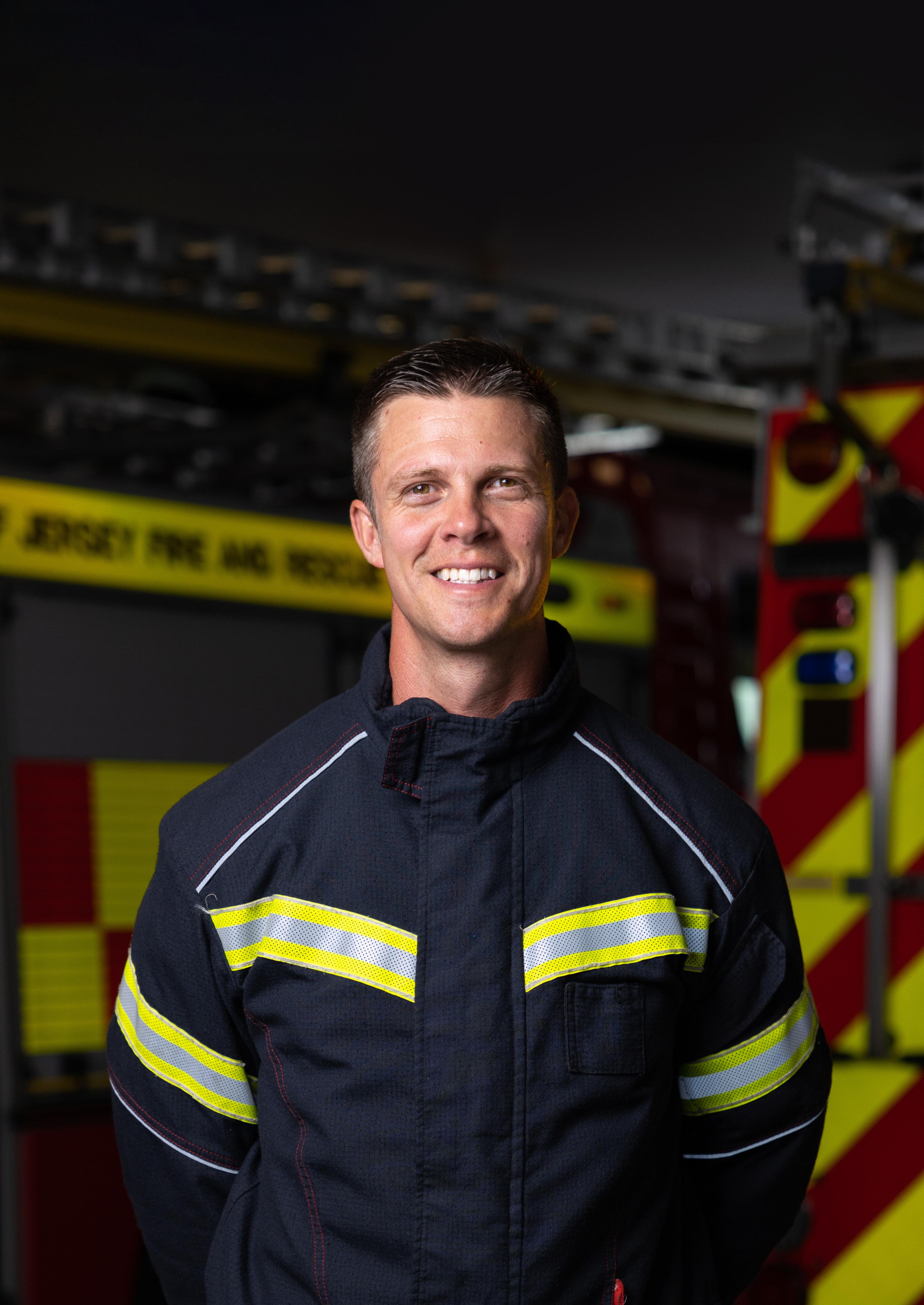
by Luke Burton,
Fighter,
pages
&
Your chance to attend a LIVE panel discussion with Spencer Matthews and colleagues on drinking less and feeling better page 12-13
Breaking down the barriers to reducing our carbon footprint pages 24-25
OCT/NOV/DEC 22 #7
thrive
Fire
Justice
Home Affairs
4-6
hello from the team!wellbeing
Are you looking for ways to improve your health and wellbeing? Would you like to find out what services are available to you as a Government of Jersey employee?
Look no further...we'll be bringing you this every quarter in your wellbeing magazine.
Your Wellbeing Support
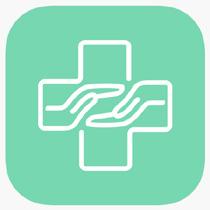
Be Supported
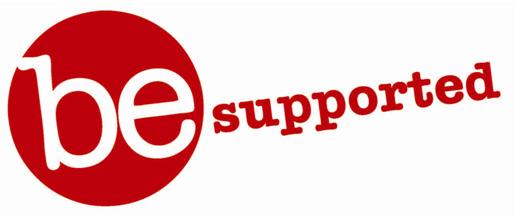
The 24/7 helpline offers practical, impartial information and support on everyday matters ranging from health issues, financial and legal matters to home and family issues. You can also access Be Supported online by visiting axabesupported.co.uk. If you wish to access further support, such as counselling, an assessment will be carried out by a qualified counsellor and together you will agree the best course of action to suit your needs. This is a confidential service.
Health at Hand
Health at Hand allows you to discuss health concerns. While the Health at Hand service does not diagnose or prescribe, and it is not designed to take the place of your GP, it can provide you with valuable information to help put your mind at rest. This is a telephone service for you and your immediate family, that you can access 24/7, 365 days.
You’ll also hear from colleagues across the organisation on what wellbeing means to them.
Thrive
Thrive is designed to help increase resilience and lower stress. You have free access to the app, which you can download from the App Store, Google Play or the website. Within the app you have access to a Cognitive Behavioural Therapy programme, the ability to seek further support and over 100 hours of content including a range of stress reducing sessions and a progress journal to help you keep track of your moods and stressors.

AXA Health App

The AXA Health app brings together assessments, coaching programmes, linemanager support, services and more to put you in control of your health and achieve real change. You have free access to the app, which you can download from the App Store, Google Play or the AXA website.
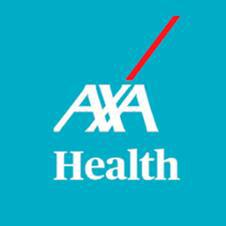
Know Your Numbers
You can attend a free health assessment within your workplace with our Wellbeing Physiologist. These health assessments are called Know Your Numbers (KYN) and take 15 minutes. The assessments give you the opportunity to find out your height, weight, waist circumference, blood pressure, resting heart rate, blood glucose (sugar) and cholesterol (the latter two involve a fingertip blood test). During the session you can receive lifestyle support to help achieve your wellbeing goals. Our KYN health assessments are free and confidential. All sessions are advertised internally.
Peer Support Networks
Colleague Supporters (formerly known as Mental Health First Aiders) are available to talk through any mild to moderate mental health issues and offer a listening ear and signposting to the appropriate service. Find contact information on the My States Wellbeing pages or by emailing wellbeing@gov.je
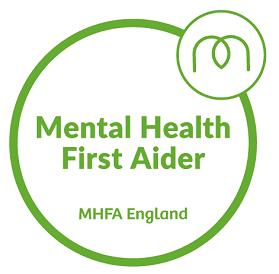
Occupational Health Advice Line for Managers
This telephone line is for managers seeking help and support on an immediate basis for Occupational Health matters relating to individual cases.
If you have any questions, please email wellbeing@gov.je
Contact us
Rob Dimsdale, Interim Business Partner for Wellbeing
E: r.dimsdale@gov.je
Luana Esteves, Wellbeing Assistant
E: l.esteves@gov.je
Ben Williams, AXA Physiologist
E: ben.williams@axahealth.co.uk
3
Helping a community to thrive
My volunteering experience with Jersey Overseas Aid
Luke Burton
FIRE FIGHTER JUSTICE & HOME AFFAIRS
Wellbeing Consultant and editor of breathe, Olivia Gill, caught up with Fire Fighter, Luke Burton, to find out about his experience in Kenya, building Sand Dams, with Jersey Overseas Aid.
Q: How did this opportunity come about?
A: The application process actually was preCovid, in Autumn 2019 with a view to go in 2020. Unfortunately, Covid delayed all that but in spring of this year the team got the go ahead and everything came together for us to head off in June. Jersey Overseas Aid (JOA) usually organise around three expeditions per year. I went to Rwanda back in 2017 and it was such an amazing experience. I just gained so much out of it, so I had been looking for another project to get involved in. When I saw this project and looked a little more into the Sand Dam process, I was fascinated by the methodology and benefits and thought it would be a fantastic experience to see it first hand as well as a worthwhile learning opportunity.
Q: What interested you in this project in particular?
A: The project was such a captivating one, the concept of a Sand Dam is phenomenal. Something
so simple but so effective, and on so many levels. The end product of a Sand Dam provides a vitally important clean source of water, with the water actually retained within the sand and therefore not exposed, reducing the risk of water borne diseases. Having a year-round water source in proximity to the village reduces time spent sourcing it and therefore frees up time for the community that can be spent on education and harvesting. The presence of the dam also changes the ecology of the local environment enabling more crops to flourish. The construction of a Sand Dam is such a game changer for a village, and the way Sand Dams operate meant we worked alongside the community the dam will serve, working as a team together towards the completion of the project.
Personally, Kenya has always been somewhere I wanted to visit. My mum was raised in Kenya, with my grandad posted there for many years training the Kenyan ‘King’s African Rifles’. I really relished the opportunity to embrace the culture and the surroundings of such an amazing country.
Q: What would a day look like for you whilst on the project?
A: We stayed in hostel type accommodation around 40 minutes’ drive from the site where we were working, in a town called Tawa. Our typical day would start with a breakfast of sweet potato, a banana and boiled eggs, with coffee at around 7am, before heading to start work. The drive was always an adventure, watching the kids head to the nearby schools, and the various shops and vendors opening for the day ahead. Around 20 minutes into our journey the road would disappear, and the dry mud dust road would begin, and every day we would be amazed at just how skilful the minibus driver was at navigating these unmarked tracks all the
way down to the river bed. The dam we were working on was known as a ‘Mega Dam’, one of the biggest that there is, measuring just short of 100 meters across the Thwake River.
Our morning would usually start with a nice natter with the community before we knuckled down to work. The shuttering for the dam (the wooden retaining walls to shape the concrete) were built by two specialists who were contracted from Sand Dams Worldwide. The rest of the workforce was made up of us - the team of 13 from JOA, and the village community who will benefit from the dam - a team of around 25. We would divide up into two or three teams and start creating huge piles of sand, before adding the cement, mixing the two together, adding water and mixing again, before pouring between the retaining walls. It sounds easy but everything is done shovel by shovel and each pile of sand was to host 50 bags of cement, with each bag weighing 50kg. The ratio we worked to was 3:1, which meant each bag of cement needed three wheelbarrows of sand, 150 wheelbarrows in total. That meant that we were mixing 10 tonnes at a time, before making it heavier by adding water and mixing it
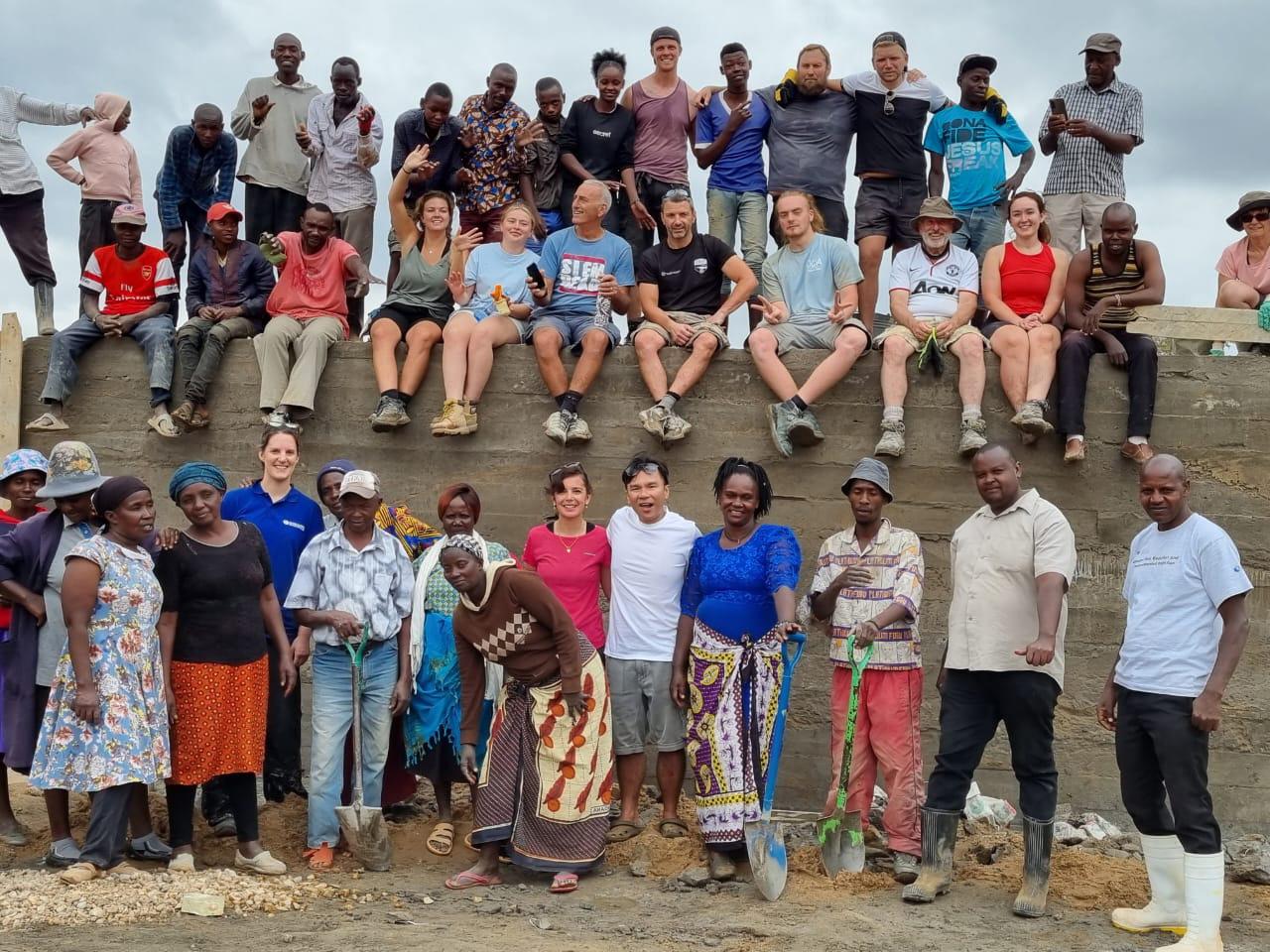
all again, before launching it all up and over the wooden shuttering, one shovel at a time!
The objective was to get through 200 bags of cement per day, 40 tonnes when mixed with sand, so it was a hugely labour-intensive project. There was respite on offer from the sand and cement, by collecting huge rocks to put within the wall to help bind it all together. Alternatively, there was a form of pickaxe which we used to dig into the sides of the river bank to create wings to anchor the dam. These had to be dug all the way down to the bed rock, around two meters down.
The work was incredibly tough, but it never felt laborious, there was always such a great atmosphere. We’d stop around 11am for a tea break and then for lunch around 2pm, prepared by people in the community. At the end of the day, we’d down tools and there would be a mass of high 5’s as the last shovel full of mortar went in, before we headed back to our accommodation to pour a desert’s worth of sand out of our boots. There we could get cleaned up and sit for dinner, which was usually ugali and rice with chicken and vegetables, and we’d sit and reflect on the day.
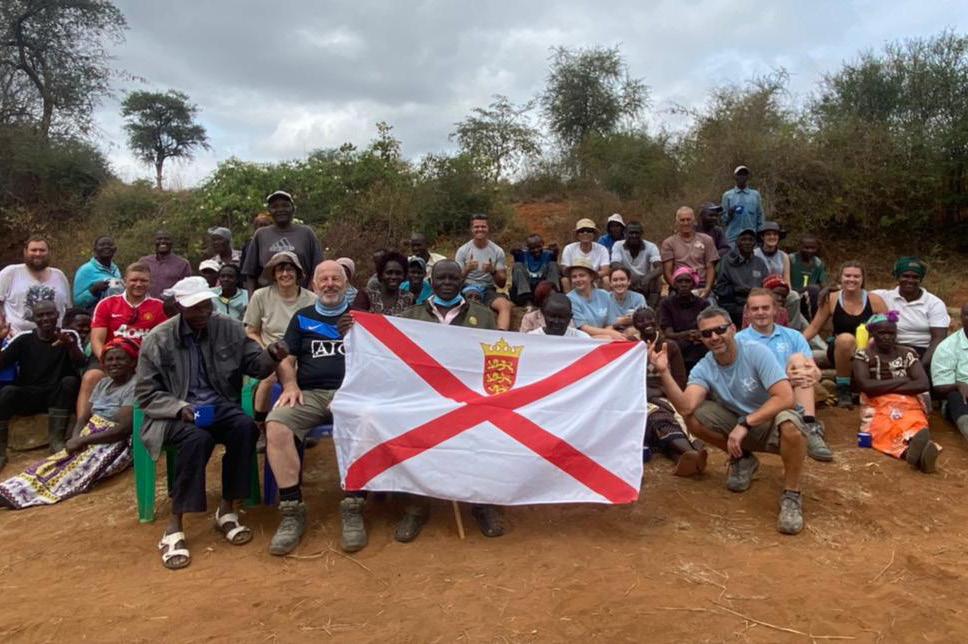
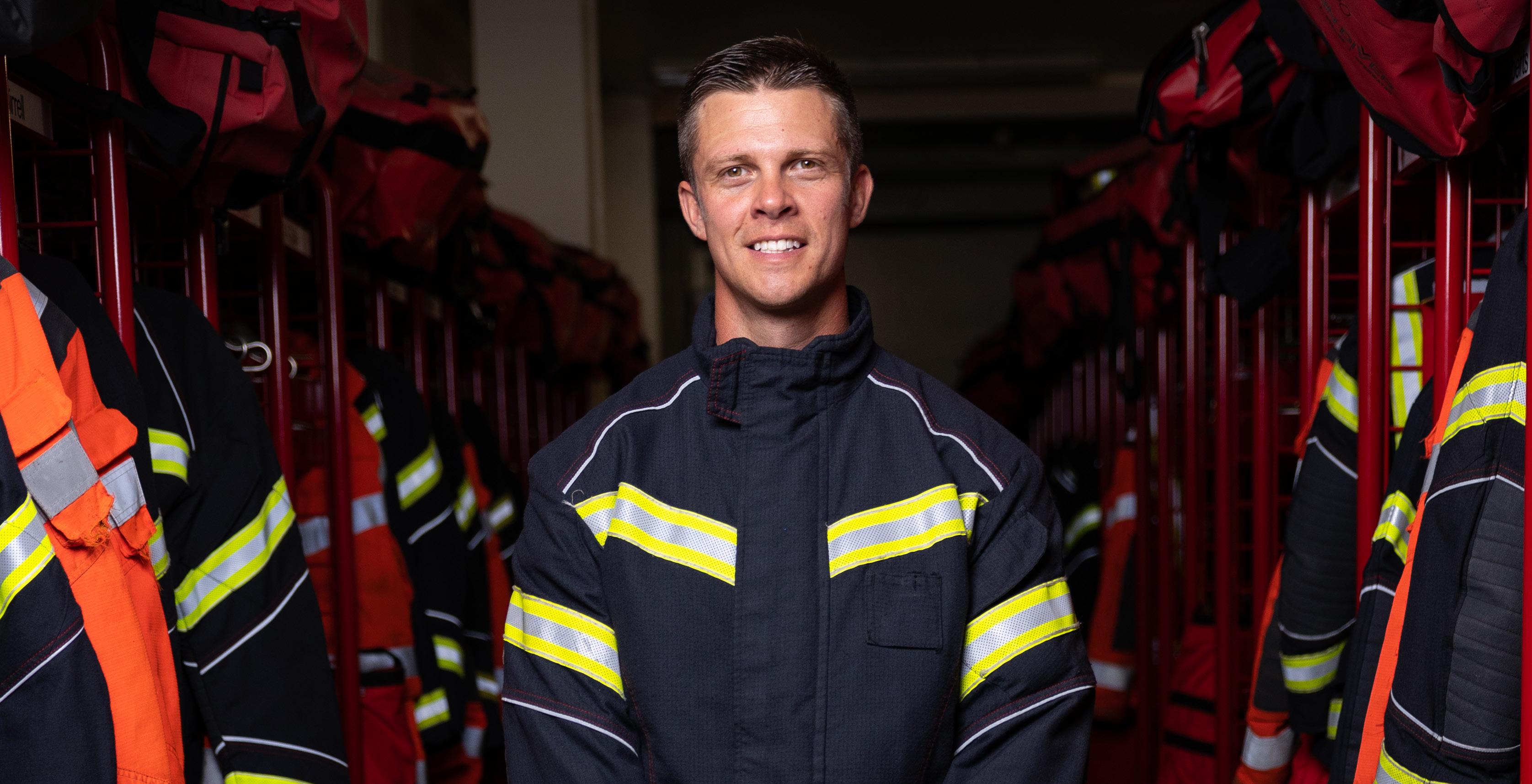
5
Q: What was your most memorable moment?
A: It’s really hard to pick a standout moment as I’ve a memory bank full of incredible memories. The daily shouts from the passing children of ‘mzungu’ (white person) was always funny and splitting the back of my shorts while working and having to wear a dress for the rest of the day was entertaining, but the memory that stands out as my highlight was a trip to see a dam that the JOA had worked on previously, around 5 years ago on a separate site. The welcoming alone was amazing, the whole community singing and coming over toward us dancing was just incredible. As I brought the standard of dancing crashing down with an awkward 2-step, I looked around at all these rich green fields of crops. The community showed us round and showed us all the various fruits and vegetables they were now growing due to the water from the dam, field upon field of them. It was amazing, and then they elaborated on their next plan, getting solar electricity to pump the water up to their village so they can work to sell that too, it just shows what a change such a simple addition can have to their lives, and how they flourish from having it but also continue to work to take the next step.
Q: As a Fire Fighter, you have many skills and qualities. What transferable skills did you use to help you succeed?
A: As a firefighter we always work as part of teams in physically challenging situations, so that aspect of things certainly helped, but I wouldn’t say there is any specific skills or qualities needed in the projects, they are for absolutely anyone. Just having the willingness to help is enough, being prepared to give up a tiny portion of time is hugely appreciated by the communities. They’re honestly so grateful and happy to have people there, listening and understanding their hardship, it is a humbling experience.
Q: What new skills did you learn?
A: I was constantly in awe at how industrious the community was. The tools were held together by the odd nail or wedge, but they worked fine. The kitchen was a pot over a fire, yet the food was brilliant. The roads are rickety but they serve their purpose. The children play with a tyre and a stick but their smiles are so bright and now we’ve met this community who are essentially building a concrete wall out of predominantly readily available materials, and this wall will change their lives. The Kamba have a word, ‘Mwethya’, and it means coming together for the greater good, and if we can add just a touch of that in our daily lives, I think we can achieve anything.
Q: Are there any plans to go away in the future? What would you like to do if you had another opportunity to volunteer?
A: I will absolutely look to volunteer again, it is such a brilliant, eye-opening experience. JOA run such amazing expeditions, so I will keep my eyes out for what comes up in the future and will undoubtably be putting my name forward again.
Luke used his Government of Jersey employee volunteering allowance for part of this trip. You can find more information about our volunteering policy on MyStates or by emailing volunteering@gov.je. Please note that your line manager must approve your volunteering request before you commit to an activity.
By pre-registering on our volunteering platform (Uniti), you’ll receive an update to let you know when you can browse the volunteer opportunities available.
Wellbeing…
What this means to us
Toby Clyde-Smith
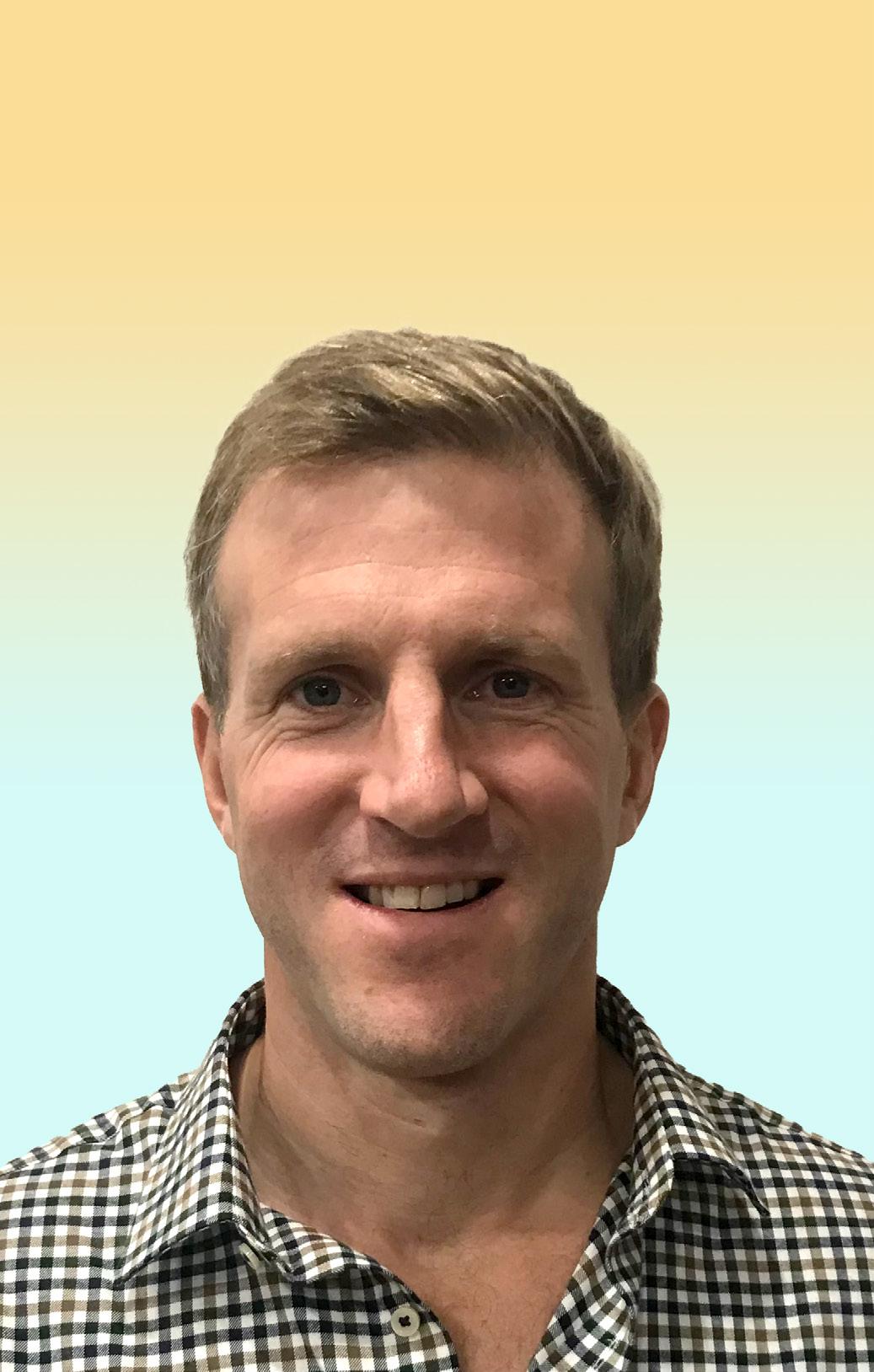 ORGANISATION EFFECTIVENESS CONSULTANT CHIEF OPERATING OFFICE
ORGANISATION EFFECTIVENESS CONSULTANT CHIEF OPERATING OFFICE
My favourite movie is The Matrix. In it, Agent Smith tells Morpheus how the world they’re experiencing – a simulation created by malevolent computers – came to be:
“Did you know that the first Matrix was designed to be a perfect human world? Where none suffered, where everyone would be happy. It was a disaster. No-one would accept the programme. Some believed that we lacked the programming language to describe your perfect world, but I believe that, as a species, human beings define their reality through misery and suffering.”
When thinking about what wellbeing means to me my mind goes to positive things in my life like my family, my career, my health and the beautiful island we live in. But Like Agent Smith I’m convinced that focusing on the positives would be a disaster for my wellbeing. The people that I’d consider ‘happiest’ are those that take risks, confront challenges, make sacrifices and seek out suffering.
My brother-in-law is training for his first Ironman later this year and grins like a Cheshire cat when he walks in from a 4-hour gruelling cycle. My wonderful 16-year-old niece habitually watches blood-filled horror movies to the fury of her parents. My wife Sophie and I have a 16-month-old daughter called Delilah. Having her has not been easy, it’s been a financial struggle, it’s been stressful, and we’ve been brain shatteringly sleep deprived. Multiple studies have found that when a child is born, most parents experience a decrease in happiness that doesn’t go away for a long time. Yet, most parents (myself included) describe parenthood as the best thing they’ve ever done. What is going on?
It occurs to me that, when I say being a parent is the best thing in my life, I’m not saying it’s always pleasurable or that I’m eternally joyous, I’m saying my life is meaningful. The writer Zadie Smith says it better than I ever could, describing having a child as “a strange admixture of terror, pain and delight.” In short, having a child is fantastic for my wellbeing because it imbues my days with colour, it gives me direction and purpose, it challenges me, and to paraphrase Karl Marx, it helps prevent my life from revolving around itself.
I think it is appropriate to close with a quote from my second favourite film, The Hitchhiker’s Guide to the Galaxy, ““the answer to the ultimate question of life, the universe and everything is… 42!” said the computer. “Forty-two!” yelled Loonquawl. “Is that all you’ve got to show for seven and a half million years’ work?” “I’ve checked it very thoroughly,” said the computer, “and that quite definitely is the answer. I think the problem, to be quite honest with you, is that you’ve never actually known what the question is.””
7
GOODS CONTROL OFFICER JERSEY CUSTOMS AND IMMIGRATION SERVICE
The Oxford English Dictionary defines wellbeing as the state of being comfortable, healthy, or happy. As a concept, wellbeing is much broader than this and has been debated since the Third Century BC, by Philosophers such as Aristotle and Socrates.
I believe there are a number of elements to wellbeing which include physical, emotional, social, spiritual, and intellectual. Continuous development within all these areas is important for ourselves, our family, friends, fellow workers and is a vital component that allows us all to flourish in all aspects of life. My passion for sport and active lifestyle has always provided me with the tools to develop these areas.
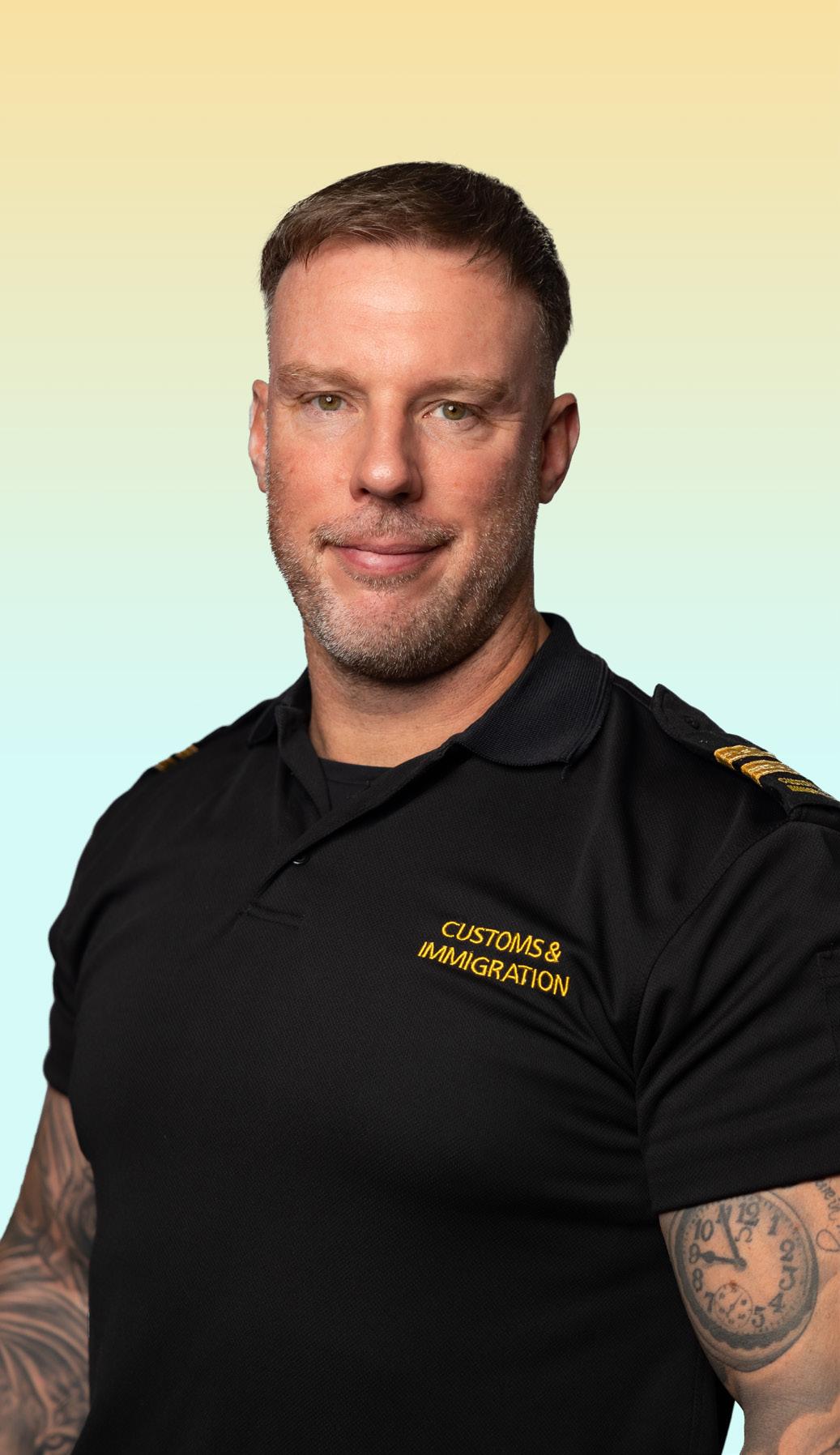
Exercise has always been an important part of my life. I was fortunate enough to be born into an active family who not only introduced me to the world of sport but also the physiological and mental health benefits of regular exercise.
Regular exercise can have a profoundly positive impact on depression, anxiety, stress and more. It promotes the release of hormones such as dopamine (feel good hormone) and serotonin (happiness hormone). It can boost your mood, improve your sleep, improve your memory, and brain function, and lower your blood pressure and heart health.
My coping mechanism has always been weight training. Not only does it offer the feel-good factor, but it also goes hand in hand with good nutrition. After all, a wellbalanced diet not only keeps you active throughout the day but also gives you the nutrients to stay strong and healthy. In addition to the gym, surfing has also been there for me. I believe the ocean has healing powers and I always feel better when I am in the sea. Surfing certainly encompasses all the components of wellbeing. Striking the right balance is also an important part of wellbeing. As much as I am an advocate for exercise, I also believe in a healthy balance. I enjoy socialising, going out to nice restaurants and the occasional bottle of wine or two…
Scott Vallance
Vicki Charlesworth
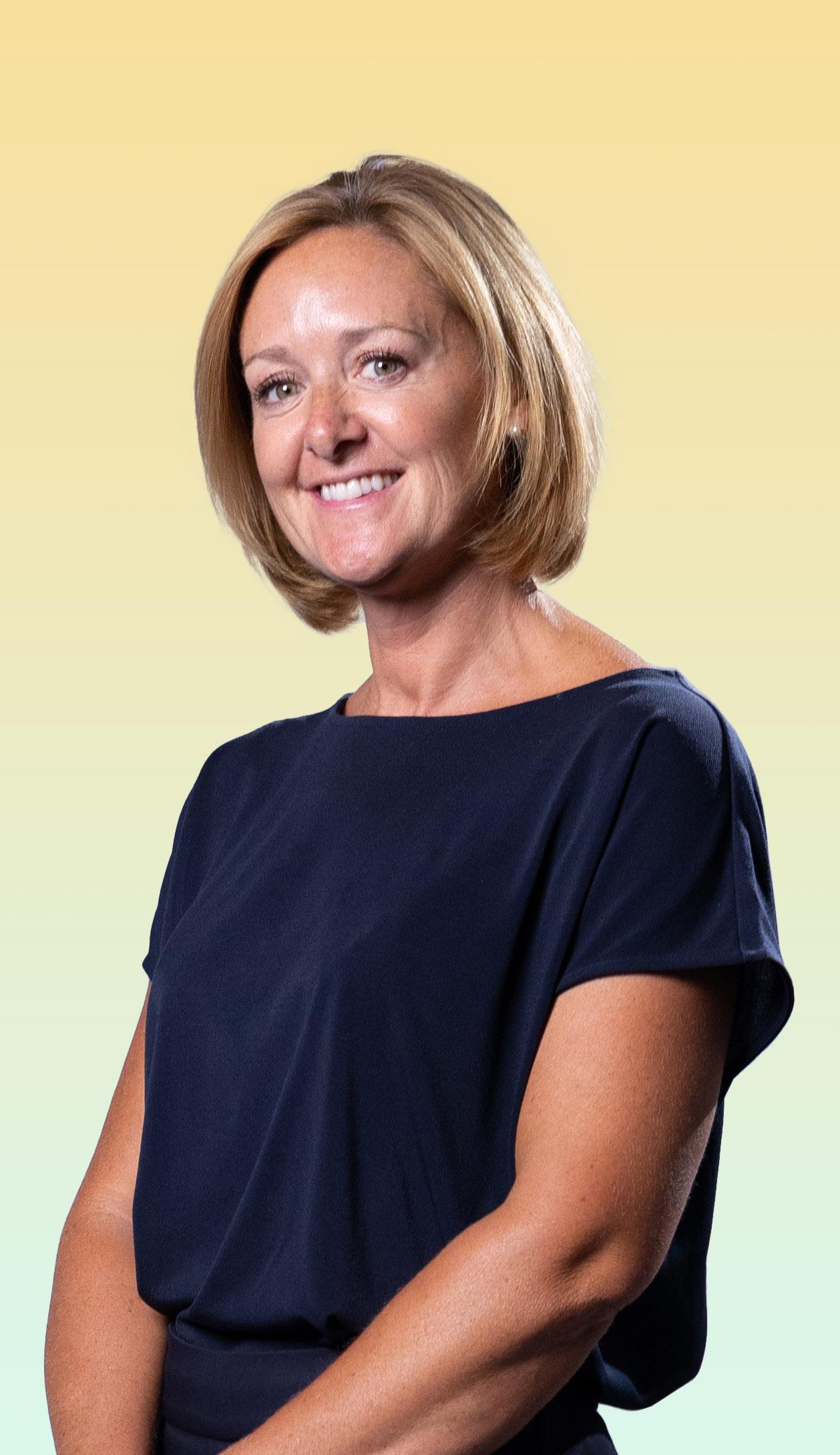 LEADING HEAD TEACHER LES LANDES SCHOOL AND ST PETER'S SCHOOL
LEADING HEAD TEACHER LES LANDES SCHOOL AND ST PETER'S SCHOOL
An authentic approach to wellbeing creates an environment where people feel like they matter. We want every member of our school community to have a sense of belonging, feel valued and have a voice.
We all want to do the best we can for the communities we serve; we all come to work to make a difference.
Going home knowing that you have made someone’s day brighter, that what you have done has helped, gives us all sense of wellbeing; it’s purposeful.
However, that commitment can lead to burnout; we care, we want to go above and beyond, it’s what we do. This was tested during the pandemic; we all worked differently in unprecedented circumstances. Recognising the signs of burnout is key for me, if I spot symptoms such as feeling helpless, over-whelmed or negative, I know I need to step back or take a break. A certain amount of stress and anxiety is normal and useful, it helps me to get things done; but when the balance tips, physical and mental health is at risk. That’s not ok.
Without a doubt, exercise supports my wellbeing and I know this because it affects me when I can’t do it!
I’ve always been an early bird and riding my bike before work sets me up for the day. I’m passionate about the difference cycling can make and I’m committed to helping children and families cycle to school. Promoting small and sustainable lifestyle changes is part of my role, as is modelling a healthy work-life balance.
School leaders often say ‘if you look after the staff, they will look after the children’ and I subscribe to this. We’re a team and supporting each other helps us to be effective in our work. We’re committed to managing workloads, identifying pressure points in the year and we take a ‘less is more’ approach to school improvement. We’re open and transparent about what we need help with, and there’s no blame or judgement. Wellbeing for us is authentic and real; culture eats strategy for breakfast.
9
Natalie Boyte
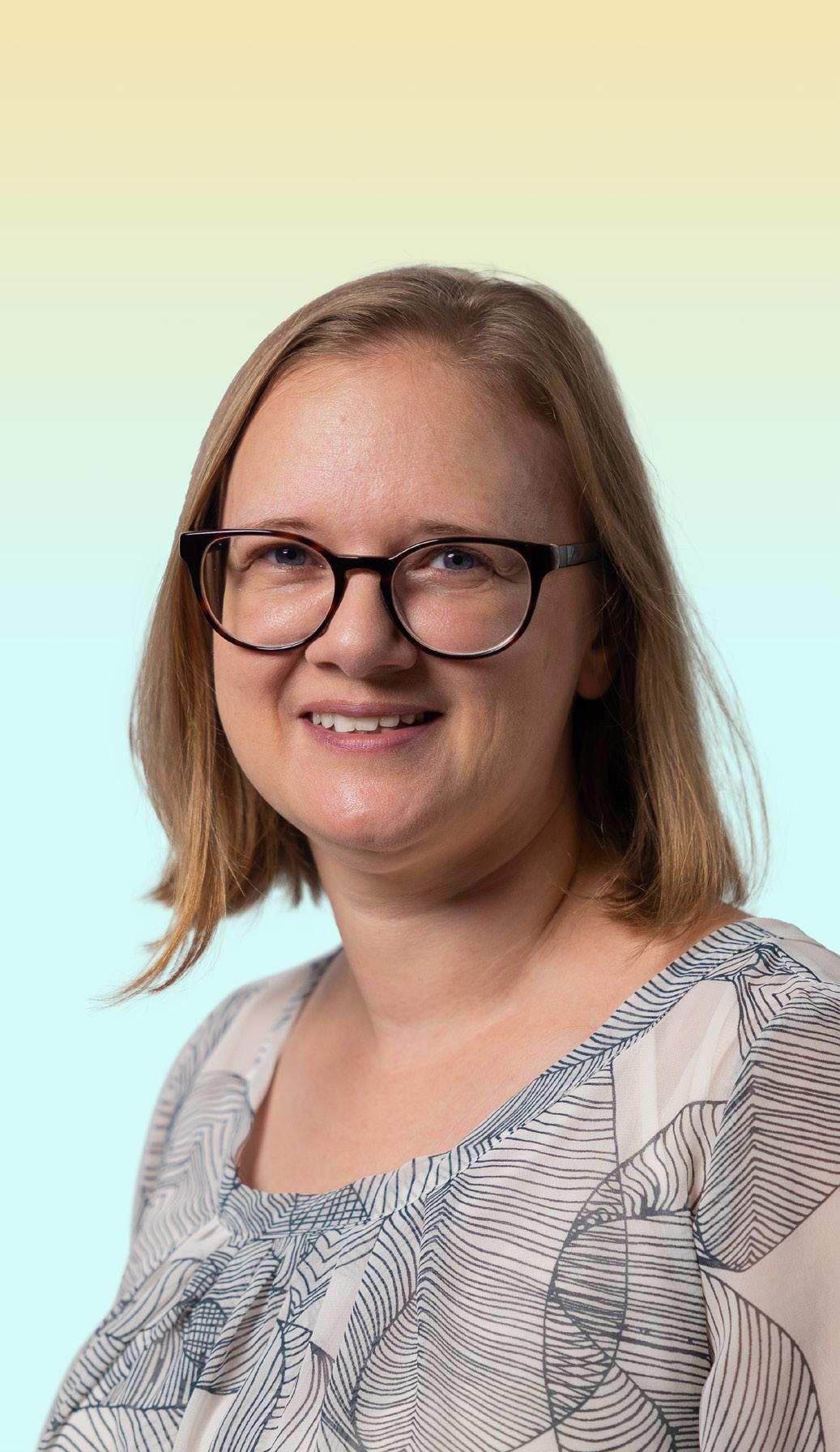 TRAINEE ACCOUNTANT TREASURY & EXCHEQUER
TRAINEE ACCOUNTANT TREASURY & EXCHEQUER
For me wellbeing means being able to take the time to switch off from the busy day and sometimes just doing something mundane like watching TV. However, I do try to go for a walk, cook, spend time with loved ones (which include my cats) or go to Zumba. I enjoy being creative either with landscape photography or more recently making paper for my wedding decorations.
All of these things that I enjoy now, would have been impossible a few years ago. From the age of 9 until I was about 30, I had severe M.E. (Chronic Fatigue Syndrome).
It was a debilitating condition which meant I spent much of my time isolated in my bedroom, sleeping, without the energy to do anything. Experiencing this chronic fatigue and isolation, caused me to become depressed which was a really difficult period of my life. I’m so thankful for my cats, who provided comfort and great therapy.
Now fully recovered I still find my cats help my wellbeing and keep me happy, however as we have two 12 weeks old kittens sometimes it can be more stressful especially when being distracted whilst trying to revise or doing the washing up!
Since I started as a Trainee Accountant with Treasury and Exchequer in February 2021, managing my wellbeing has become even more important as I have started taking exams and moving to new placements within Treasury. Being able to balance my work and personal life can at times be challenging, but I am enjoying my studies and being able to focus on this and see a bright future has improved my wellbeing.
I realise the importance of looking after myself, particularly my health, recognising when I am becoming stressed or overwhelmed then consciously making time for myself to relax. Being open and honest with myself and others is the best way, something I have learnt to do over the years and now I do without thinking. Putting healthy boundaries in whether that be saying “I don’t have time today, how about later in the week” to a meeting request or saying, “could we do that another time?” to a social invitation is ok, and I really feel the benefits of doing this.
If you do not feel as though you want to do much, try and make some time to do something that makes you feel better even if it is watching an old episode of ER!
Focus on the positive things that you can do and as a colleague recently said, “make the most of every moment.”
Breast Cancer Awareness Month
October 2022
Rubin Soomal CONSULTANT CLINICAL ONCOLOGIST
HEALTH AND COMMUNITY SERVICES
Breast cancer affects 1 in 8 women in their lifetime, which means you are likely to know someone who has been affected by this disease. Around 55,000 new cases are diagnosed in the UK each year and 100-120 women are diagnosed on Jersey each year.
Self-examination can sometimes help to detect changes leading to an earlier diagnosis which is an important factor for the best outcome. But how is self-examination performed and what should people look out for?
Breast Cancer Now is a charity that provides reliable information and support for patients, plus their families and friends. Breast Cancer Now encourages women to get to know how their breast look and feel. By doing this regularly, women will be more confident when something doesn’t feel right and will also get to know what is normal for them as part of their regular body care. Click here for a step-by-step guide on how to check your breasts.
“There’s no right or wrong way to do it and no need to alter your body care routine. For instance, you can check your breasts and the area around them while you’re in the bath or shower, when you use body lotion or when you get dressed. Do what suits you best.”
Most breast changes will turn out to be normal or because of a benign (not cancer) breast problem but if you are concerned, it’s best to have things checked out and visit your GP.
If there are concerns, your GP may refer you to the Breast Team at the Newgate Street Clinic for assessment.
Women are also screened for breast cancer by the mammography department, but this needs women to contact and register for this from the age of 49 and upwards. Screening mammograms are offered every two years from the age of 50 until the age of 70 (however, women can choose to remain on the screening programme up to the age of 75).
There’s a team of radiologists, radiographers, nurses, and surgeons to support women during this time and especially to help the small proportion eventually diagnosed with cancer. There may be additional scans, biopsies and operations involved by these teams. All patients are discussed at our weekly Multi-Disciplinary Team (MDT) meeting.
The oncology team of nurses and doctors who look after breast cancer patients are usually involved after surgery (but sometimes before), to discuss additional treatments. This may include discussing radiotherapy, anti-cancer drugs or hormonal/endocrine drugs. Radiotherapy is the only treatment we cannot do on island. One of the recent very helpful initiatives by a local charity, Macmillan Jersey, has been a PreRadiotherapy Support Worker and Clinic to help ease the difficulties patients endure when referred to the mainland for radiotherapy.
We’re very fortunate to have excellent support from a number of amazing charities on Jersey such as Macmillan Jersey, but also ABC Breast Cancer Support and FOJO (Friends of Jersey Oncology based in the Oncology Unit of Jersey General Hospital). Information on these charities and many others can be found on cancer.je, a Jersey website aiming to make things easier and bringing local information together for people with cancer plus their families.
11
Together, let's drink less and feel better
It’s October, the month that has become synonymous with ‘giving up’ alcohol, and this month we want to focus on gaining healthier relationships and habits with the alcohol we drink by reducing our consumption. We want to welcome and encourage alcohol-free days, and connect through shared experiences.
Join an exciting event
You’re invited to join our live Q&A event with well-known TV personality and entrepreneur, Spencer Matthews, Alcohol Psychologist, Dr Luke Shobbrook, and Director of Public Health, Professor Peter Bradley. The panel will discuss how we understand our limits, the detrimental e ects of too much alcohol, and how we can drink less to feel great!
The discussion will be hosted by our very own Carla Jardim on Friday, 14 October at 4pm.
Send questions to our panellists and join the live Q&A event or enter our prize draw to be randomly selected to join the event live at The Studio
Those invited will have the opportunity to meet Spencer Matthews and sample his CleanCo, non-alcoholic drink.
Also coming up during October
Spencer Matthews shares his story with us in a Q&A with Wellbeing Consultant, Olivia. Colleagues from across the organisation let us into their personal experience with alcohol. Colleagues working in the Alcohol Dependency teams provide us with informative and educational content. Explore the Drinks Meter Toolkit.
Not to be missed!
Towards the end of October, a by then familiar Spencer Matthews will also be hosting us with our very own cocktail making masterclass, showing us how to create some of his favourite recipes without compromising on taste! The pre-recorded session will be made for everyone to view online in your own time.
Meet the panelists
Carla Jardim Acting Head of Communications, CYPES
Carla Jardim is Acting Head of Communications for Children, Young People, Education and Skills (CYPES). Before returning home to Jersey in 2019, she led on communication withand training for - volunteers in student unions and overseas aid charities.
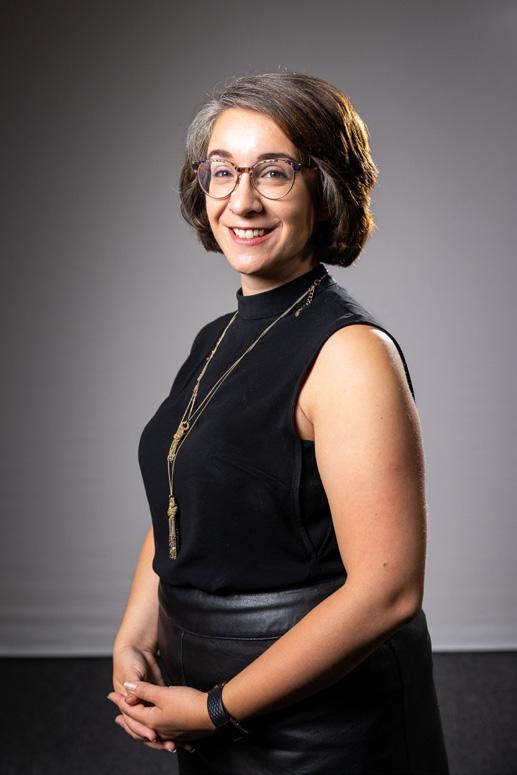
Outside work, she spends her time volunteering as a Girlguide leader, sea swimming, and playing board games (with the express exception of Monopoly). She is also an avid reader, attempting to read more books than she buys or borrows.
Spencer Matthews Chief Brand Officer, CleanCo
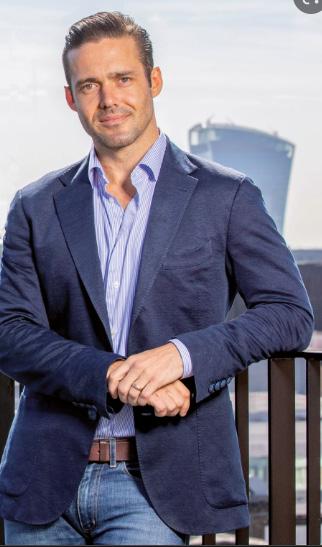
CleanCo founder Spencer Matthews is a British entrepreneur and popular television personality. He lived in a cycle of drinking excessively during his twenties, in jobs where partying and entertaining was part of the package. Before the birth of his first child, he decided to ‘go clean’, unlocking a dimension of his life that surprised him. He became more focused, driven, creative and able. Developing CleanCo in 2019 was not to preach about alcohol consumption, but to give a choice when mixing a drink, without compro mising on taste or social experience.
. Dr Luke Shobbrook Chartered Counselling Psychologist
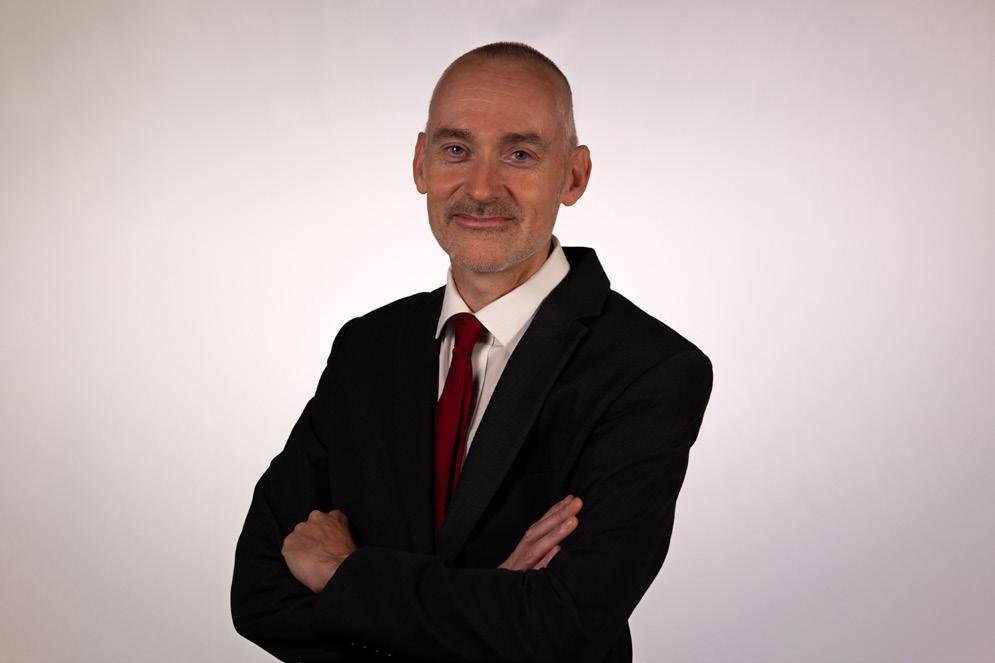
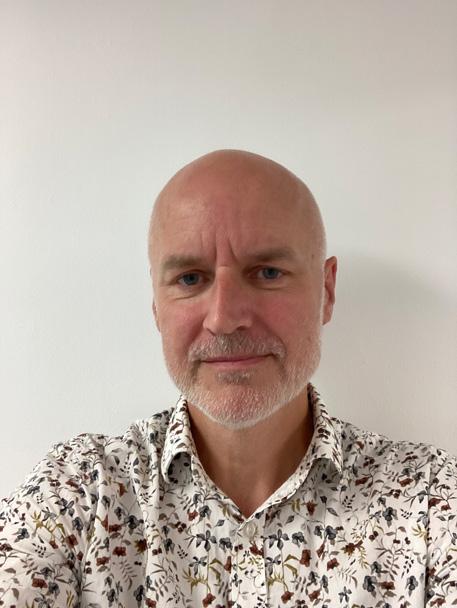
Dr Luke Shobbrook is a Chartered Counselling Psychologist working for the Alcohol and Drug Service in Jersey. Luke has a broad theoretical knowledge of various therapeutic models, which he applies in his work with individuals and groups using the principle of doing ‘what works’ for them. He’s passionate about the role of psychology in helping support and deliver compassionate, person-centred care to those who use alcohol or drugs at every level of the service, by using a multi-disciplinary approach that considers each person’s unique circumstances and recovery goals
Professor Peter Bradley Director of Public Health
Peter has worked as a director in areas relevant to public health for over 15 years, and combines skills as Medical and Public Health Director, with those of Chief Information O cer. He’s won several awards for innovative approaches to improving the public’s health, including top awards from the Royal Society of Public Health. He also has a major interest in community-led initiatives, digital innovation, and tackling health inequality.
Peter’s worked in Wales, Norway, England and Jersey. He has strong international networks and speaks a number of European languages, which has helped him to learn about best practice in public health internationally. As well as having honorary academic posts at Cambridge and City Universities, Peter has published a range of high-impact reports and academic publications.
13
WORLD MENTAL HEALTH DAY
10 OCTOBER 2022
The Passenger in the back seat of our car
written by Lee Bennett, Mental Health Practitioner for the Government of Jersey
So here we are again with another world Mental Health Day. With the World Health organization (WHO) strapline of “Make Mental Health & Wellbeing for all a global priority, furthermore suggesting that this time is, “an opportunity to re-kindle our efforts to protect and improve mental health”.
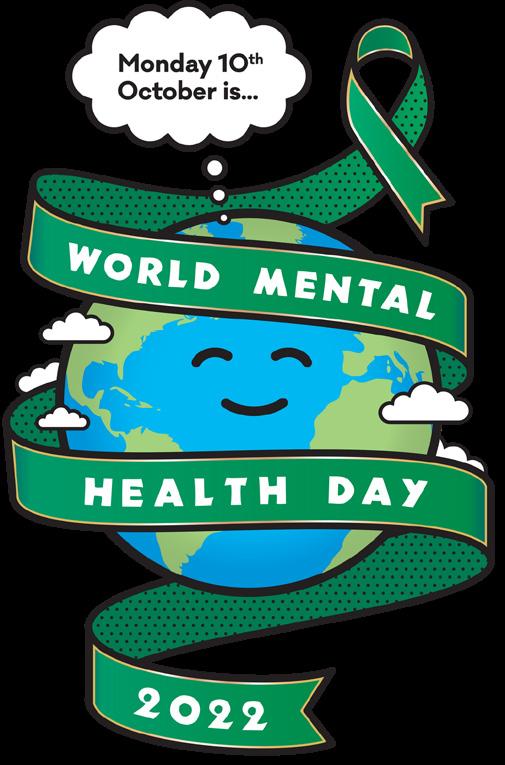
Language such as “global priority” and “rekindle” in this context is, by definition, maintaining that we are not making Mental health and Wellbeing a global priority and that the fires of our lives are not providing much heat for 364 days of the year.
For the 16 years of my work within Mental health settings across statutory and non-statutory services, for the 1000’s of patients I have met during this time and for the numerous staff within these organisations, Mental Health has always been, and still is, sitting in the back seat of a glitzy, glamorous well-appointed car. With tinted windows, just in case ‘it’s seen’ or ‘we see it’. We all know that it takes up space, but we don’t really bother; we don’t look in the mirror, until its entirely blocking our rear view. Then we might seek help and need to be given mechanisms to help deal with this passenger. We search for answers and listen to prompts in our lives such as from World Mental health day. These events and interventions can have a diluting effect on our own ability to self-manage and to spot the
annoyance in the back seat of our car earlier in our lives. We may feel better for a short while, but longer term the passenger remains. Sometimes we just have to pull over and open the rear door and say hello… all year round.
Now you’re thinking, well this would be exhausting, constantly having to deal with what is going on with me and what’s shouting from the back seat. The truth is, this ‘Mental Health’, it’s always there, 365 days of the year, and it’s actually more exhausting ignoring or trying to think your way out of. Opening ourselves up to the fullness of every experience we have, being brave enough to invite what difficulty is there into our lives, peering into the backseat, allows us to create our own control over how we respond to any given situation and, in turn, reduces the possibility of our own ‘rear view mirror’ to be entirely blocked, overwhelming us.
Rumi the Poet and Mystic sums it up well in his Poem ‘The Guest House’, where he suggests at one point to:
“Welcome and entertain them all! Even if they’re a crowd of sorrows, who violently sweep your house empty of its furniture, still, treat each guest honorably. He may be clearing you out for some new delight.”
Keep the fire burning, make your mental health a day-to-day priority. That way society will be influenced by us all enough to not just have certain ‘days’ to remind ourselves that ‘Mental health and Wellbeing should be a global priority’, but that it’s available all year round.
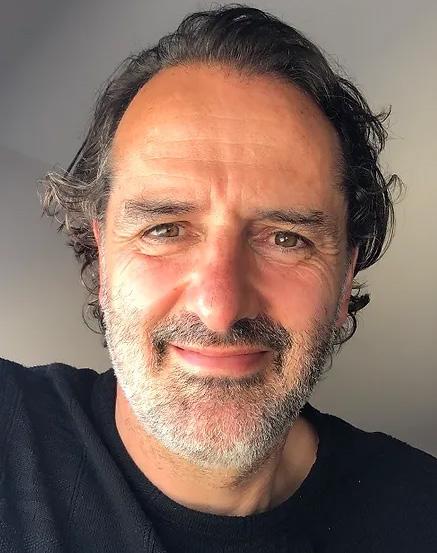
Making Mental Health and Wellbeing for all, a global priority…. every day
Lee Bennett is a Mental Health professional and a registered Mindfulness Based Cognitive Therapist, with over 16 years of experience. Lee currently works for the Government of Jersey as a Mental Health practitioner working with patients and colleagues within a primary care setting. Lee teaches and helps people to understand themselves and how they interact with the world. He’s presented various talks to Health and Community Services (HCS) colleagues on Mindfulness and Mental Health and has provided many drop-in sessions for HCS and primary care colleague during the COVID-19 outbreak. Lee specialises in public speaking on a variety of psychological, social and Mental Health topics.
Lee has produced a few top tips to Make Mental Health & Well-being for all a global priority all year round…
1. Keep looking in your ‘rear view mirror’ In other words, don’t ignore how you think and feel, try and name your thoughts and feelings. (For example…here’s anger, here’s sadness, here’s the thought “I’m useless”) rather than defining yourself as the emotion or thought (I’m angry, I’m sad, I’m useless). Notice them and allow them to be there.
2. Communication. Talk when you need to. Talk to yourself, talk to a valued family member or friend, talk to a colleague, talk to your boss if you can. Sharing what’s going on for you can be so important to remind you that you are human and that we, as humans, share very similar needs and emotions.
3. A very powerful and affirming statement is to recognise that you are only in control of your response to any given situation, not the situation itself.
4. Learn to pause and breathe. Practice the art of pausing and breathing - just that. Only noticing your breath in that moment, wherever you notice your breath in your body. No need to change anything, just notice your breath. This allows us to create a space between any difficulty and your response. When a situation arises, and you notice that it’s difficult; pause and breathe.
5. Listening. Properly listening. Take the time to listen to what’s going on around you, what’s going on for you, and how you feel. Ask yourself, what’s my own weather today? All too often we’re on transmit for various reasons. Listening to our circumstances allows us to create choice and a deeper connectedness to ourselves and the moment.
6. Checking in with others. When you’re able to notice how you feel (see Listening and pausing. Points 4 and 5), you’re much more able to notice others, and how they’re behaving and of any tonal change. If you notice a change in character for someone else, ask them how they’re doing?
15
Further reading and other information
1. Togetherall - Togetherall is a safe, online community where people support each other anonymously to improve mental health and wellbeing. If you’re a Jersey resident, you have free access.
2. Mental Health Network (gov.je) – One stop resource for access to support regarding all areas of Mental Health support, intervention and education
3. Mindfulness: A practical guide to finding peace in a frantic world –Mark Williams - A book with a collection of simple yet powerful practices that you can incorporate into daily life to break the cycle of anxiety, stress unhappiness and exhaustion.
4. The Miracle Of Mindfulness – Thich Nhat Hanh – The classic text from Thich Nhat Hanh explaining how to acquire the skills of mindfulness.
5. Rumi: Poems (Everyman's Library Pocket Poets Series)
6. Silence: In the Age of Noise – Erling Kagge – A book on the power of listening, silence and of self-awareness
7. Lighten the Load (libsyn.com) – A series of Government Podcasts hosted by Lee Bennett, talking with various individuals about work stress, coping mechanisms and mental health awareness.
8. Overcoming Depression and Low Mood, Overcoming Anxiety: A Five Areas Approach, Fourth Edition – Williams – Two books to help you understand why you sometimes feel low, anxious, angry, or guilty. It also teaches proven practical skills to help you change how you feel.
CAFE
Celebrate World Menopause Day!
Date: 18 October 2022
Times: 08.30am-1.00pm
Title of event: Breaking the Stigma – Let's Talk Menopause!
Where: Grand Suite, Grand Hotel
Guest Speakers: Dr Claire Hardy and ClareLouise Knox
Panel: Kate Wright, Nour Belal and Trudi Roscouet
This is the event you have all been waiting for and will not want to miss! To celebrate the World Menopause Day, we have a fantastic guest speaker line up that will be able to inform you about all things Menopause.
You will hear from our inspiring guest speakers: Senior lecturer in Organisational Health and Wellbeing Dr Claire Hardy and Director of See Her Thrive Clare-Louise Knox.
More about the guest speakers:
Dr Claire Hardy: Claire is a mixed methods researcher specialising in the area of work psychology. She is passionate about solving real-world problems at work and uses a variety of methods and approaches to help achieve that. Claire's main research areas of interest lie in the fields of international working and expatriate assignments, women's health at work (in particular, reproductive health topics including the menopause and premenstrual experiences), and employee psychological resilience. Claire also enjoys intervention development and evaluation and developing new measures or scales.
Clare-Louise Knox: ClareLouise is an award nominated Business Psychologist with a passion for women’s health. A rising female founder and expert in her field, she’s a dynamic and accomplished international speaker who captivates audiences with her warmth, wit and Northern charm. Clare-Louise can help break the silence around sensitive women’s health issues in
your organisation, while keeping the atmosphere energised and fun.
There will also be a Q&A at the end of the presentations lead by the speakers and some of our local menopause consultants
Meet the panel:
Kate Wright: Consultant and co-founder of The Diversity Network. Kate is also chair of Women for Politics Jersey and the creator of the 51 employers’ pledge.
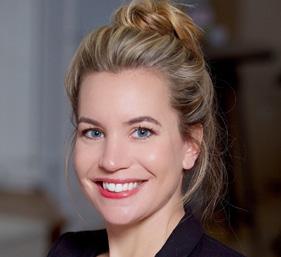
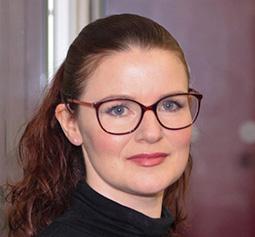
Nour Belal: working in the legal profession for many years, Nour is very passionate about ensuring that workers with disabilities, or physical or mental health conditions, are not substantially disadvantaged when doing their jobs.
Trudi Roscouet: a qualified health and fitness professional, founder of Vitality40plus, and an avid brand ambassador for menopause.
If you want to attend the event or have any questions, please contact dei@gov.je
About the Menopause Café network
The Menopause Café Network is a safe space for colleagues to:
• share information
• ask questions
• get support
The Café is for those who are directly affected by the menopause, and friends, family, and colleagues who are indirectly affected.
All genders and ages of colleagues are welcome to join, whether they're experiencing symptoms themselves and want to meet others in a similar situation, or if they'd like to understand more about the menopause.

To join the Menopause Café, please fill out this form.
You don't have to commit to anything, and your information will be used only so that we can let you know about events.
17
Read Siobhan’s story…
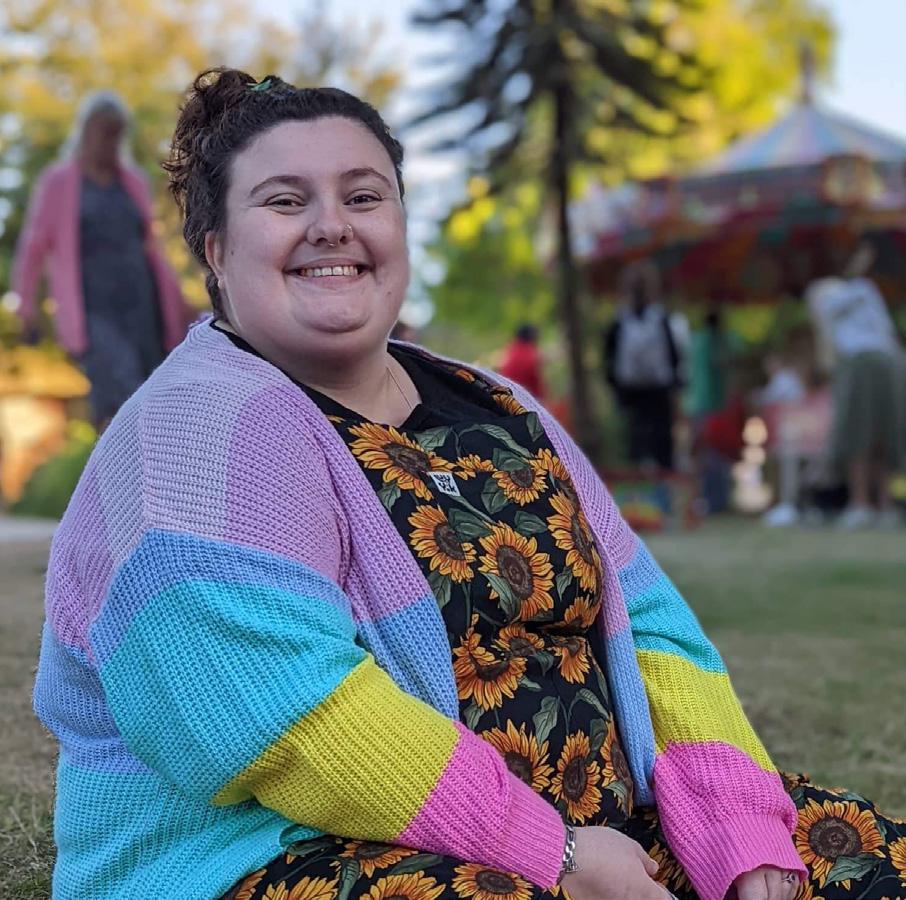 LEARNING AND SKILLS ASSISTANT IN ORGANISATIONAL DEVELOPMENT
PEOPLE & CORPORATE SERVICES
LEARNING AND SKILLS ASSISTANT IN ORGANISATIONAL DEVELOPMENT
PEOPLE & CORPORATE SERVICES
Myself and my partner had been trying to conceive for a short period of time and he was then told he was going to be made redundant from his role, so we decided to put a pause on this. We’d also just bought our first flat and wanted to ensure we were in a comfortable position before we welcomed a baby into our world. A little after we made this decision to pause, I found out I was pregnant! As a plus size woman, I honestly never thought it would ever happen in a million years so felt an overwhelming sense of happiness but also apprehension and panic due to the timing and our readiness. Myself and my partner decided to keep our baby.
For any woman, the first 12 weeks of a pregnancy is a very difficult, lonely and stressful period because of the possibility of miscarriage being so high. In fact, about one in five recognised pregnancies end up in miscarriage. All seemed to be going well, until I was around eight weeks and unfortunately miscarried in July. It has been and still is an extremely difficult time, but I am so grateful that my partner is able to help and support me through this process.
I am also very thankful to my family, colleagues and managers. My manager kept in touch with me during this time and was extremely supportive. They sent me flowers to my home which made me feel thought of and cared about. I cannot thank everyone enough for the support and understanding I was given during this difficult time.
Since my miscarriage, I’ve had family, friends and colleagues to support me and with miscarriage being more common than you might think, it’s important to have a support system. I know this is a very difficult subject and it’s often taboo because we often do not know how to talk or approach the subject of miscarriage, so I’ve listed some ways to get support below. Please know that it’s okay not to be okay.
Support available
Refer to pages 2-3 of the magazine for all wellbeing support available to you
Your Pregnancy - gov.je Philip’s Footprints Mental Health Network – Government of Jersey

When I initially found out that I was pregnant with my first baby it was a mix of emotions.
Siobhan Bentley
9-15 October 2022
Bounce Back & Thrive, sessionswellbeing
brought to you by the HCS Culture, Engagement and Wellbeing team.
Log onto Virtual College and register your place now! Sessions have face to face and virtual registration available.
Kerrie Le Meur, Senior Psychological Wellbeing Practitioner and Elsa Roberts, Senior Counsellor, who work in the HCS Culture, Engagement and Wellbeing team will be delivering sessions on sleep, tolerating uncertainty, resilience and compassion.
SLEEP FOR STRESS with Kerrie
Come and find out evidenced based cognitive behavioural therapeutic techniques to help you get a better night’s sleep, improve your sleep quality, and feel more refreshed and alert during your day. Learn how to get the best out of your sleep wake cycle and take away some top tips for getting to sleep and staying asleep.
TOLERATING UNCERTAINTY with Kerrie
We live in increasingly uncertain times. Consider how acceptance of the emotions that come alongside difficult times can be the key to helping us feel calmer during uncertainty and learn how to draw on your own resilience and coping strategies to help you through challenging and uncertain times in your life.
RESILIENCE with Elsa
Build your own resilience, learn about the theories of resilience as well as application of these to help you feel more confident and bounce back more quickly from challenges in your life.
COMPASSION with Elsa
Learn more about the concept of compassion, how to harness it and use in in our day to day personal and working lives to help us not only feel calmer and less stressed but to also bring compassion into ourselves. Learn tools and techniques to help you reflect on and use compassion in more practical ways in your own lives.
How to register?
1. Log onto Virtual College
2. Click on “Events”, then “Available Events”

3. Search “Wellbeing”
4. Select your session, date and face to face/ virtual
5. Add to Outlook Calendar
Sleep for Stress
Monday 3 October, 5.15 to 6.15pm, The Learning Loft, Bermuda House
Sleep for stress
Monday 17 October, 5.15 to 6.15pm, The Learning Loft, Bermuda House
Resilience
Tuesday 4 October, 12.30 to 1.30pm, Lower Hall, St Paul’s Centre
Resilience
Tuesday 18 October, 1.30 to 2.30pm, The Learning Loft, Bermuda House
Compassion
Wednesday 5 October, 11.30-12.30, Lower Hall, St Paul’s Centre
Compassion
Wednesday 19 October, 11.30am to 12.30pm, Lower Hall, St Paul’s Centre
Tolerating uncertainty
Thursday 6 October, 5.15 to 6.15pm, The Learning Loft, Bermuda House
Tolerating uncertainty
Thursday 20 October, 5.30 to 6.30pm, The Learning Loft, Bermuda House
Please contact wellbeing@gov.je if you have any questions.
19
Get Nutritious with NutritionHumankynd


Log onto Virtual College and register your place now! Sessions will be face to face only and have limited availability.
Jessica Pinel, experienced Nutritionist, will be taking us through our gut health and the foods we can eat to nurture and care for a healthy gut.
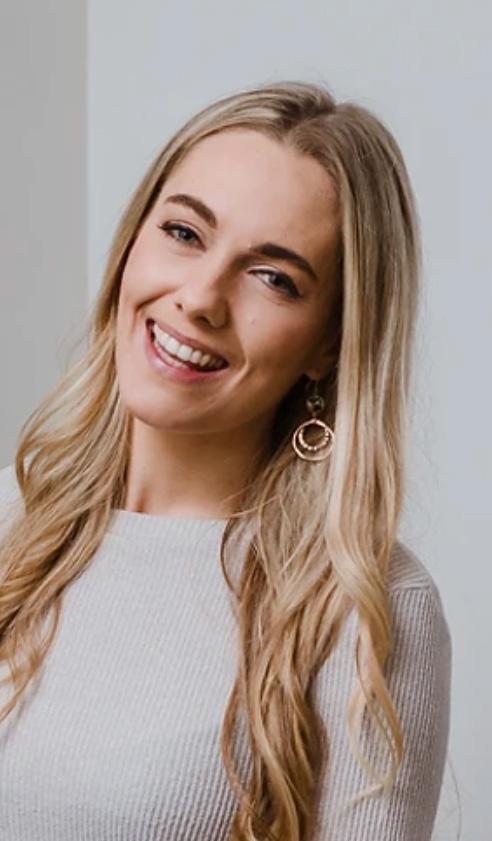
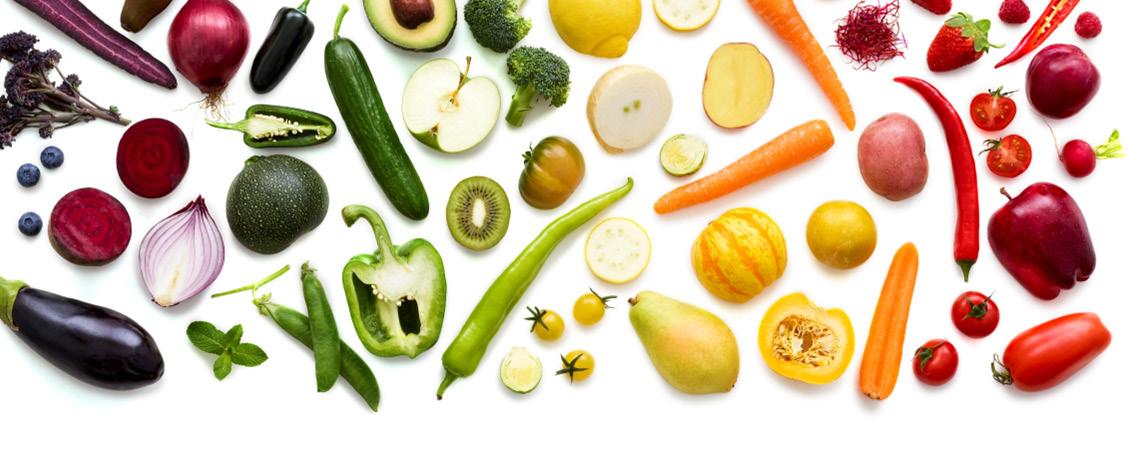
Jess will talk us through the following:
• The colonisation of the gut microbiota
• Common problems associated with our gut
• The power of pre and probiotics
• Top tips for supporting your gut health This will be followed by gut health drink tasting and gut health snack making.
Session 1
Monday 3 October
3.30 to 4.30pm
The Learning Loft Bermuda House
Session 2
Monday 17 October 3.30 to 4.30pm
The Learning Loft Bermuda House
Men’s Health MOVEMBER 2022
Movember is an annual event involving the growing of moustaches during the month of November to raise awareness of men's health issues, such as prostate cancer, testicular cancer, and men's suicide. The goal of Movember is to "change the face of men's health”.
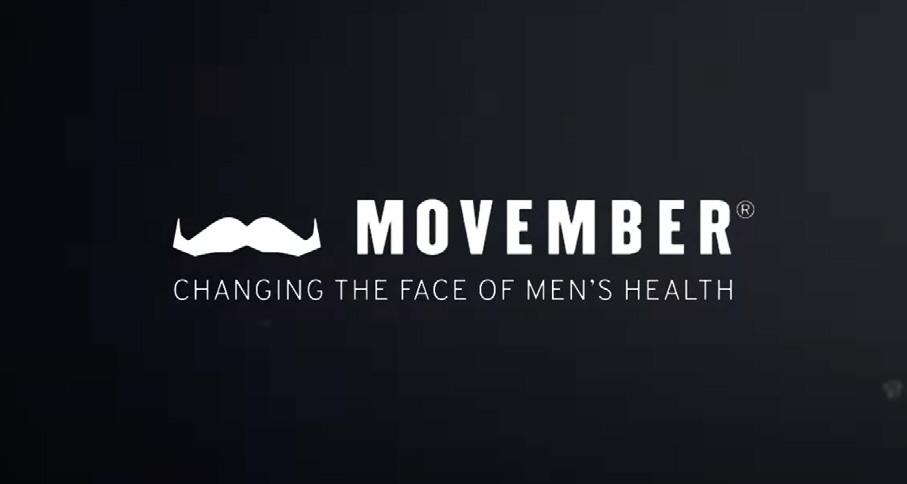
GET INVOLVED
Movember - Sign up here
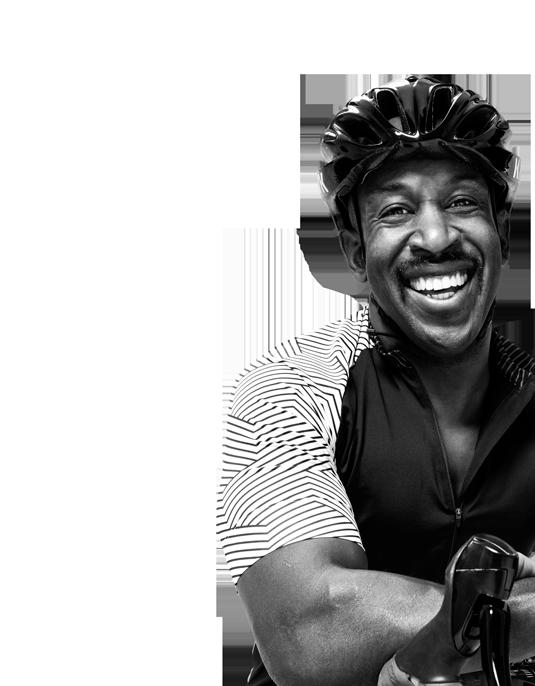

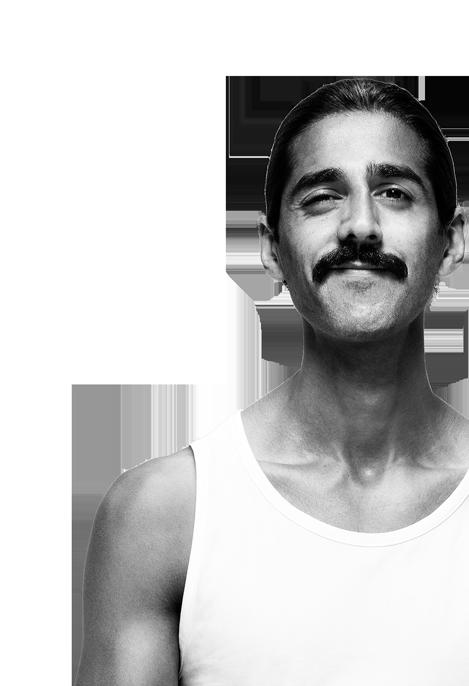
GROW A MO
Patchy, lopsided, itchy or epic – whatever Mo you grow this Movember, your face will raise funds and awareness for men’s health.
HOST A MO-MENT

Rally a crew and do something fun and easy. Hosting is all about having a good time for a good cause.
MOVE FOR MOVEMBER
Commit to running or walking 60km over the month, at your own pace. That’s 60km for the 60 men we lose to suicide each hour, every hour across the world.
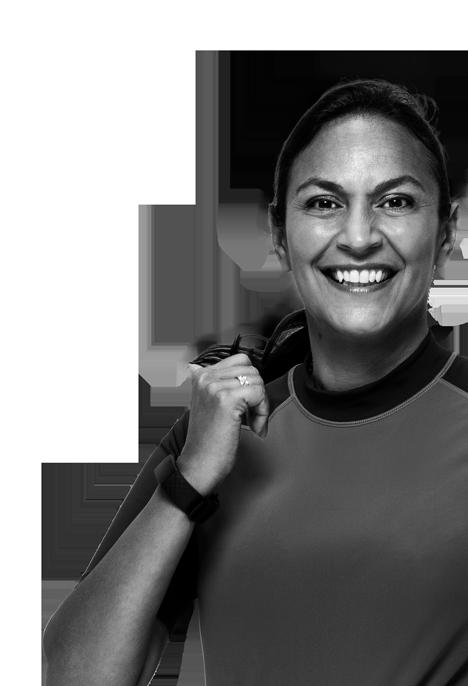
MO YOUR OWN WAY
Create your own challenge –it can be anything. A gruelling test of physical endurance or something else entirely. Your epic efforts will help change the face of men’s health.
Men’s mental health and wellbeing Q&A with Thrive
Prostate cancer webinar with Thrive
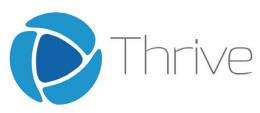
21
Dates for the Diary
AXA Webinars

Tuesday, 18 October, 12 to 1pm, Understanding the menopause
You will learn about:
• What the menopause is, when and why it happens
ADD TO CALENDAR
• Symptoms to look out for
• Strategies to help manage menopause symptoms
• Supporting ourselves and others
Monday, 14 November, 12 to 1pm, Developing your toolkit
You will learn about:
• How to define mental health and wellbeing, and what this means to you
ADD TO CALENDAR
• Different ways to look after your mental health, including the ‘Five Ways to Wellbeing’
• How to develop resilience, and understand mindful practices
• Top tips and skills to build your own personal toolkit
THRIVE Webinars
Each webinar is led by one of the experienced team with an open Q&A at the end to give you the opportunity to ask them anything. They’ve got amazing guest expert speakers lined up covering a range of exciting topics.
Wednesday, 5 October at 12pm, Cognitive Behavioural Therapy (CBT) and Reframing Negative Thoughts
BOOK YOUR PLACE
Hosted by Anna Naumenko, Business Psychologist and Richard Middleton, Senior Relationship Manager at Thrive.
• What is CBT?
• What are the benefits of CBT?
• Thrive: Mental Wellbeing app demo showcasing how to access the CBT programme plus other techniques
Thursday, 17 November at 11am, Engaging Men with Wellbeing Panel Event
Hosted by Dr Andres Fonseca, Consultant Psychiatrist and Co-Founder of Thrive joined by a guest panel.
We will be joined by some experts from leading organisations showcasing their challenges, highlights and advice when trying to engage men with mental health.
Friday, 16 December at 12pm, Letting Go & End of Year Reflection
Hosted by Maria Dimitreli, Business Psychologist at Thrive.
To end our year, we will be hosting a session on letting go, reflecting on the year and setting reasonable goals for next year.
Missed a webinar? Watch all previous recordings here.
Try out the THRIVE app! The app provides you with the tools to manage your mental wellbeing, empowering you to understand your emotions, differentiate between helpful and unhelpful thoughts and be the best you can be.
To access the app, download it from App Store, Google Play or the website and use your work email address as the username. The access code is T21201
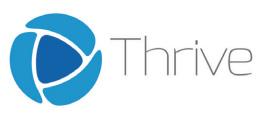
Summer Internship
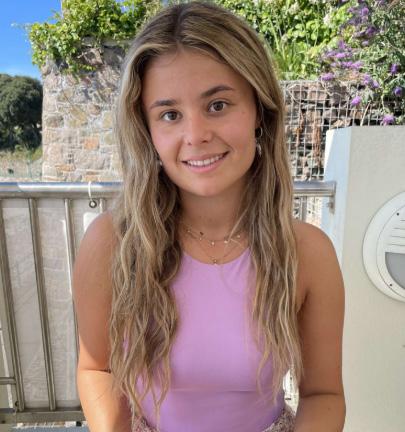 Class of ‘22, written by Gabi Knight
Class of ‘22, written by Gabi Knight
For six weeks, I had the opportunity to intern for the Government of Jersey within the Organisational Effectiveness (OE) team. I had just finished my first year of university, studying Media and Communications at Loughborough, so this was my first real exposure to ‘office work’. The nature of my course, and many university courses alike, is that it doesn’t lend me to one profession. While this has its perks, it also makes answering the classic question, “what job do you want when you finish university?” very difficult. This was one of the reasons why I applied, to gain better insights of what work I am interested in.
Every Friday, all 42 interns were given the opportunity to attend ‘Insight days.’ We were lucky enough to experience a ‘day in the life’ at: Government House, Solid Waste, Police HQ, States Greffe, Children, Young People, Education and Skills, and Strategic Policy, Planning and Performance. We quickly learnt that in each department there is such a variety of jobs. I think this is what makes working for the Government of Jersey so special as you deal with a breadth work, that elsewhere would be spread across multiple local governments.
I was offered the chance to attend Team Jersey sessions, which promote positive working environments. This initiative surprised me as I saw colleagues constantly looking for ways to propel themselves and their team forwards. I learnt that the Government of Jersey are always looking to improve strategies and its working environment, something which hasn’t always been transparent to the public eye.
A consensus that can be drawn from my overall experience is everyone, regardless of their job title, always made me feel welcome and valued my input. I am relieved to say this experience was not a case of coffee runs and photocopying, or anything in between! I was given an amalgamation of projects, ranging from comms pieces for ‘Our Stars’ and the ‘Our People Series’ podcast (free on iTunes and Spotify), to writing articles and attending meetings with department leads.
I can honestly say this has been a positive experience which has taught me practical and technical skills, that I can implement in my university degree and future job prospects. It also was a needed reminder for myself that it’s okay not knowing what job I want in the future. This has calmed my monthly ‘panic moment’ over what I’m going to do after university! Whilst this sixweek experience is over, I am continuing to work with the OE team for two days per week, remotely from university. Flexible working is another perk of working here!
A special thanks to the OE team; Emma, Lorraine, Toby, Pat and Roz who made me feel so welcome and involved during my six weeks here.
23
Breaking down the barriers to reducing our carbon footprint
2022 has seen the introduction of a Decarbonisation unit to the Government of Jersey, which will be instrumental in achieving our organisational decarbonisation targets within the wider Carbon Neutral Roadmap. As part of this, an Employee Forum has also been created, with the aim of collecting your ideas and supporting colleagues through this journey.
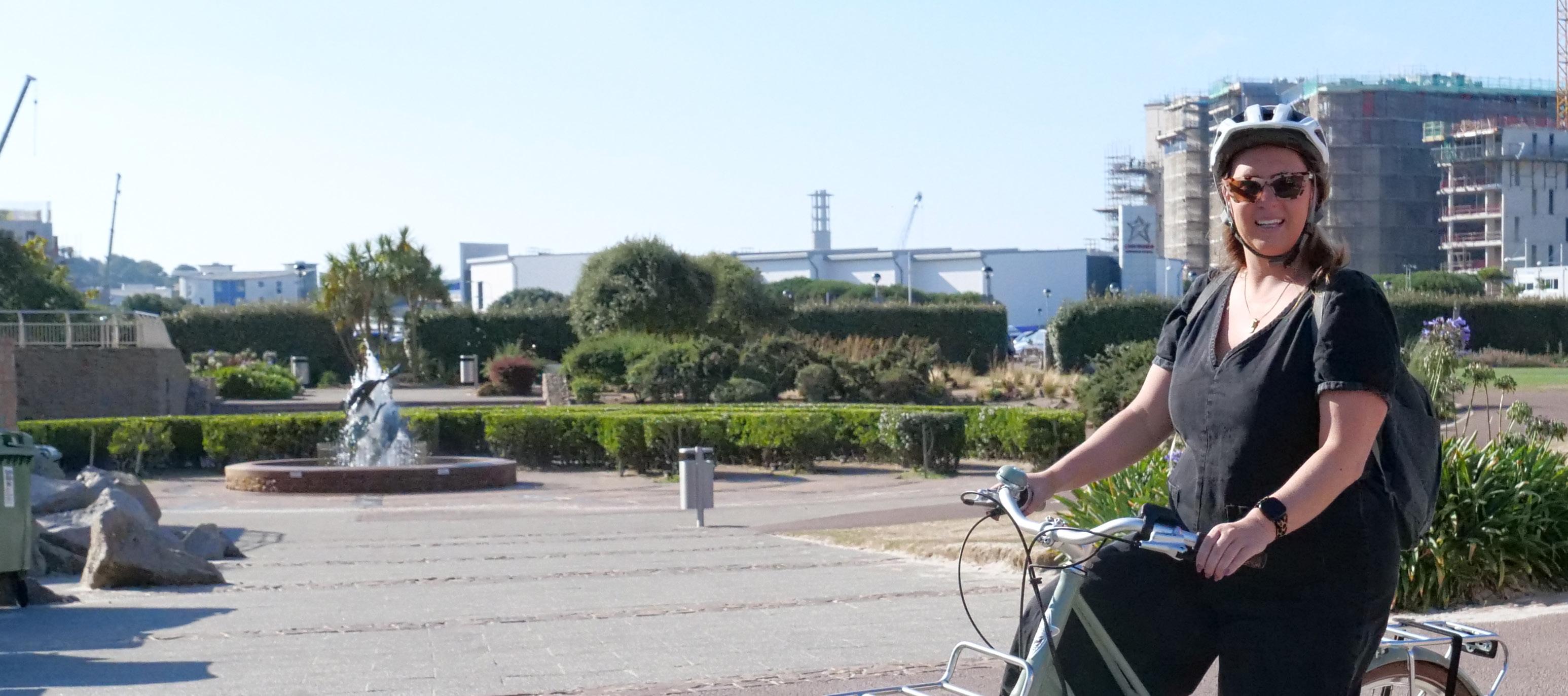
The link between well-being and our environment is well established; as such, we hope to facilitate a workplace where all employees are encouraged to make small lifestyle changes for the good of our planet, and our emotional and physical well-being, alongside our major operational reductions.
Climate anxiety: What is it?
Unsurprisingly, with the increasing attention on climate-related news and information, climate anxiety is also on the rise.
Moreover, as humans, our brains are wired to give more weight to negative stories – it’s the reason why one tiny criticism can outweigh a hundred compliments received. Consequently, the sheer volume and scale of bad news stories about climate change rapidly becomes overwhelming. Reactions experienced may range from feelings of fear, shame, or anger, to powerlessness, or exhaustion. Solving such a problem in our lifetimes, at global scale, begins to feel impossible. Thankfully, one of the simplest antidotes to climate anxiety is to proactively seek out the positive news. Understanding what other people are doing and how we can all make a difference to our community, helps rebalance our perception of possibilities and re-motivates us to contribute in what ways we can.
Whilst it would be hard for us all to do everything, we can start to chunk action into manageable pieces. After all, the 80/20 rule, says 80% of outcomes come from 20% of causes. We don’t have to be perfect, but we just have to start, and we can build from there.
What has the Employee Forum been working on?
Greenhouse gases accumulating in the atmosphere take time to break down. Therefore, the time multiplier effect in play here is key. A “simple solution, deployed today, can have three decades of impact. A high-tech solution, deployed in the 2040s, only gets one.”
As such, over the past few months, we’ve been looking at ways that we, as employees, can make small achievable changes to reduce our respective carbon footprints, and help further the island towards its overall carbon goals for 2030, 2035 and 2050.
Currently, one of our key focuses is how we travel to and from work each day.
From research, we know that, not only is active travel to work the most carbon-friendly way to commute, but it offers a plethora of benefits to our wellbeing too. Therefore, we’ve also been listening to what you think your barriers to change are and are trying to find solutions to help you overcome these.
When it comes to cycling, each person has their own individual needs, from support buying a bike to improving confidence riding. Consequently, by utilising feedback loop surveys, the Employee Forum is aiming to achieve a ‘you said we did’ approach to help meet your needs as effectively as possible.
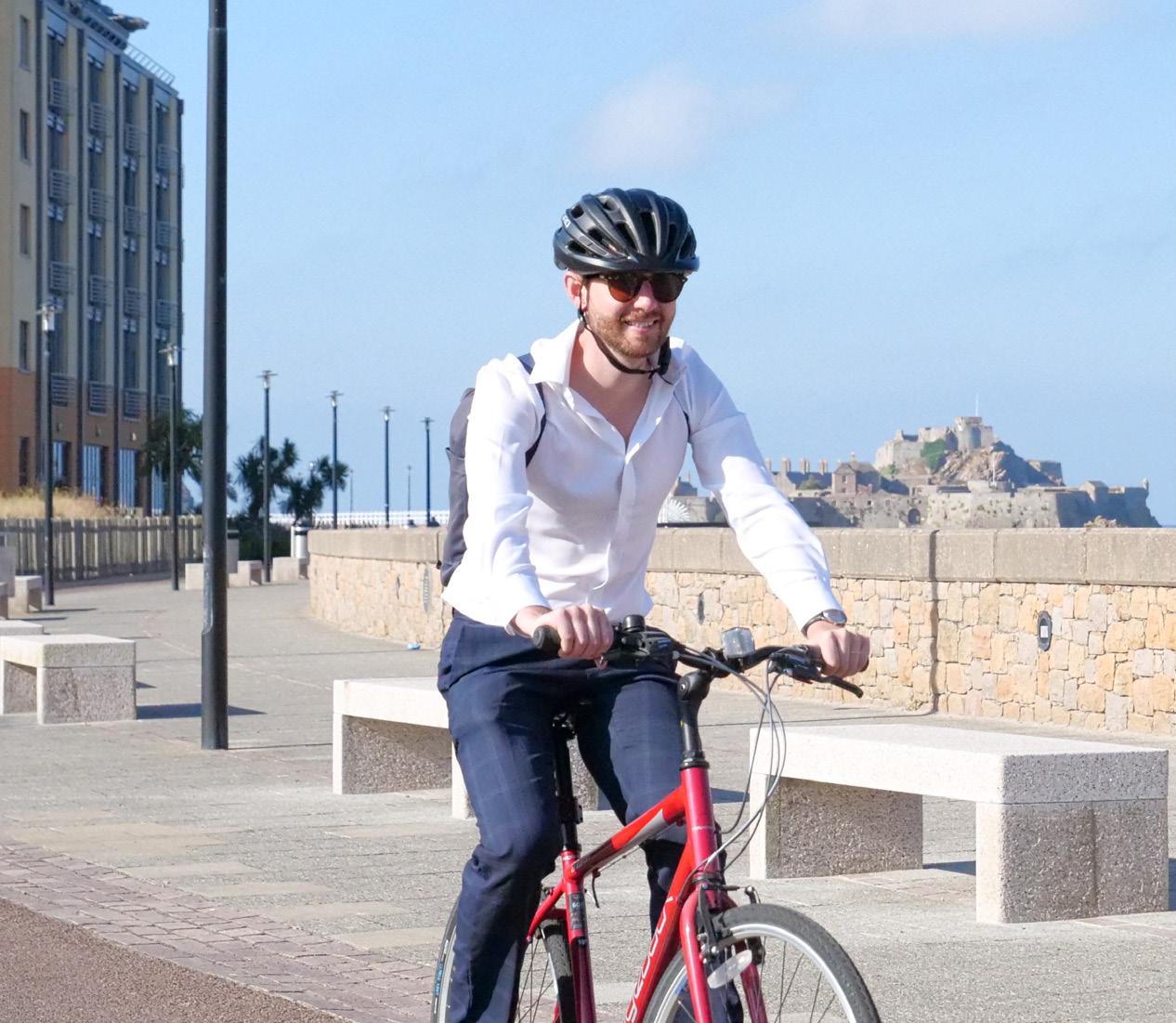
So far, the Employee Forums has:
• secured a new discount with Big Maggy’s for GoJ employees offering 5% off bikes and 10% off all other products and services,
• launched a towel service in Broad Street after a successful pilot and are looking to roll this out further,
• started compiling facilities register so employees know what is available in each GoJ building,
• rolled out further surveys to understand your opinions on current facilities and where we can plug the gaps that prevent you from running, walking, or cycling to work.
The Forum is also setting up a focus group to understand how we can further support your transition to sustainable travel, and make cycling, running, or walking to work an easier, and more enjoyable, experience.
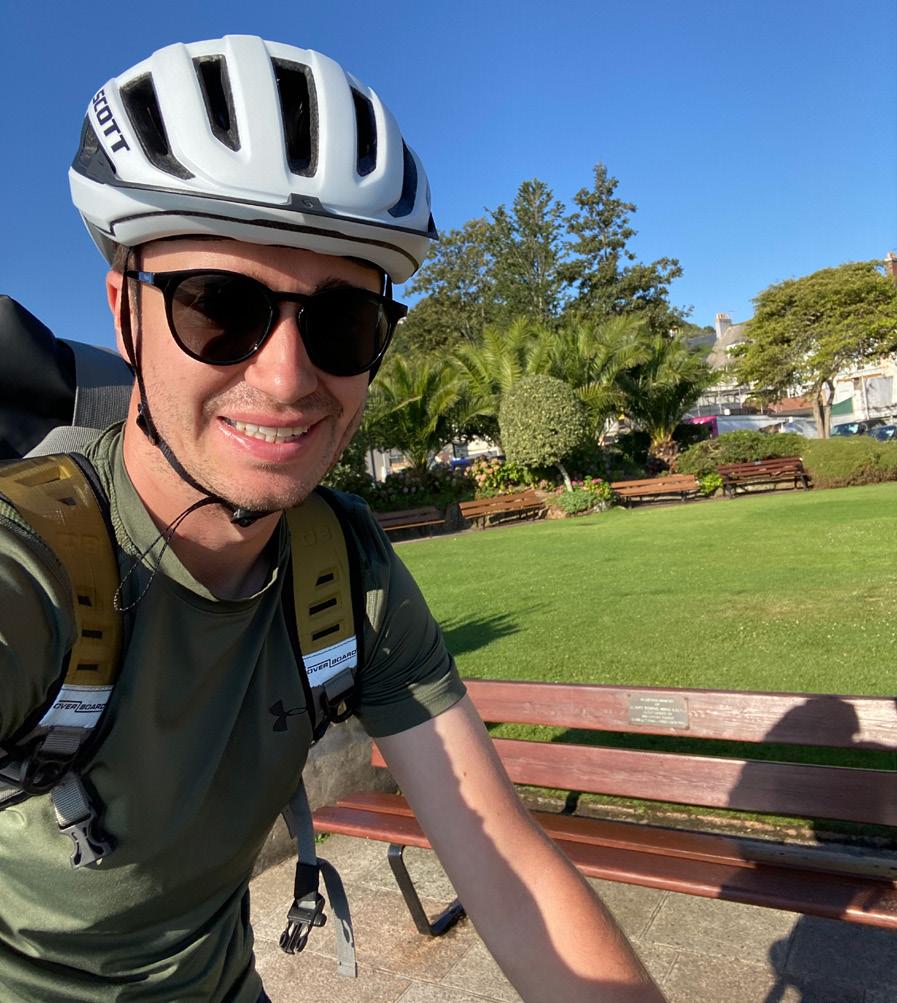
We are also looking at energy use in our buildings, cycling challenges, further employee reward schemes, e-bikes for use between GoJ meetings and bicycle maintenance workshops, to name a few.
We’d love to hear from you on how we can get more people cycling or walking to work, and what you need, as an employee, to make this switch. To join the focus group, scan the QR code.
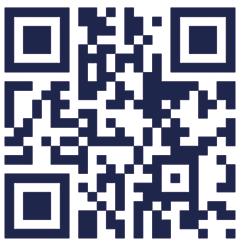
There is so much we can work on in this area and this is only the start. Together, by making small changes, we can make a big difference collectively.
If you wish to be part of the Employee Forum, please contact COO@gov.je
For more information on cycling click here
Decarbonising
25
Government
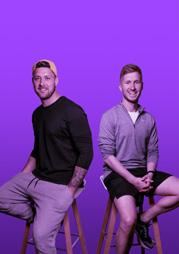
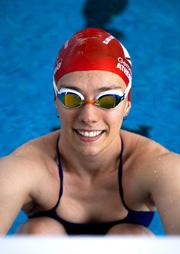
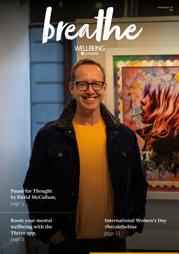
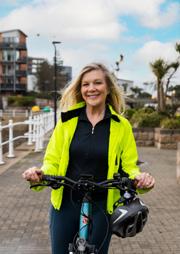
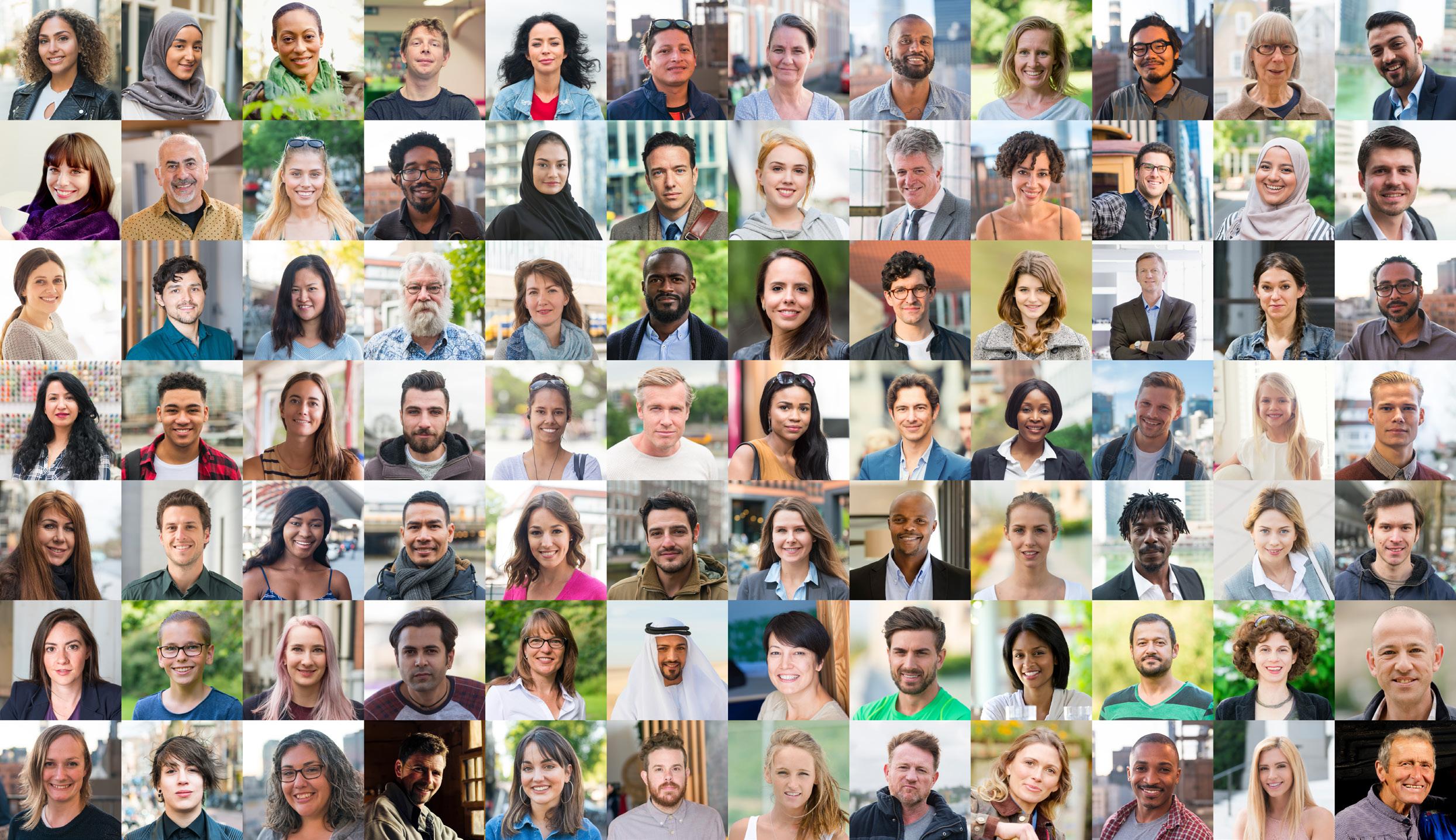
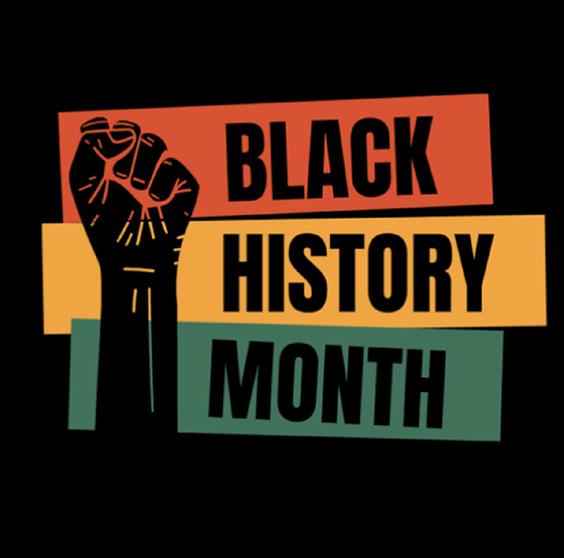
Wellbeing Contact Details E: wellbeing@gov.je AXA Portal Technical Support: 01323 436727 Employee Assistance Programme: 0800 072 7 072 (24/7 support) Please get in touch if you would like to share your stories, or have any ideas on what could feature in future issues of Breathe. See previous issues of breathe here: AXA Health app Navigating through the Jun/Jul 22 Aug/Sep 22 breathe Register for AXA and International Nurses Day by Suzanne Wylie Feb/Mar 22 Apr/May 22 Join us for a series of events throughout October at The Jersey Museum, Cineworld and The Jersey Library. For full details search REACH Network on MyStates or email REACH@gov.je Celebrate Black History Month with REACH in October BAME network is rebranded as REACH (Race, ethnicity and celebrating cultural heritage)











 ORGANISATION EFFECTIVENESS CONSULTANT CHIEF OPERATING OFFICE
ORGANISATION EFFECTIVENESS CONSULTANT CHIEF OPERATING OFFICE

 LEADING HEAD TEACHER LES LANDES SCHOOL AND ST PETER'S SCHOOL
LEADING HEAD TEACHER LES LANDES SCHOOL AND ST PETER'S SCHOOL
 TRAINEE ACCOUNTANT TREASURY & EXCHEQUER
TRAINEE ACCOUNTANT TREASURY & EXCHEQUER









 LEARNING AND SKILLS ASSISTANT IN ORGANISATIONAL DEVELOPMENT
PEOPLE & CORPORATE SERVICES
LEARNING AND SKILLS ASSISTANT IN ORGANISATIONAL DEVELOPMENT
PEOPLE & CORPORATE SERVICES















 Class of ‘22, written by Gabi Knight
Class of ‘22, written by Gabi Knight









